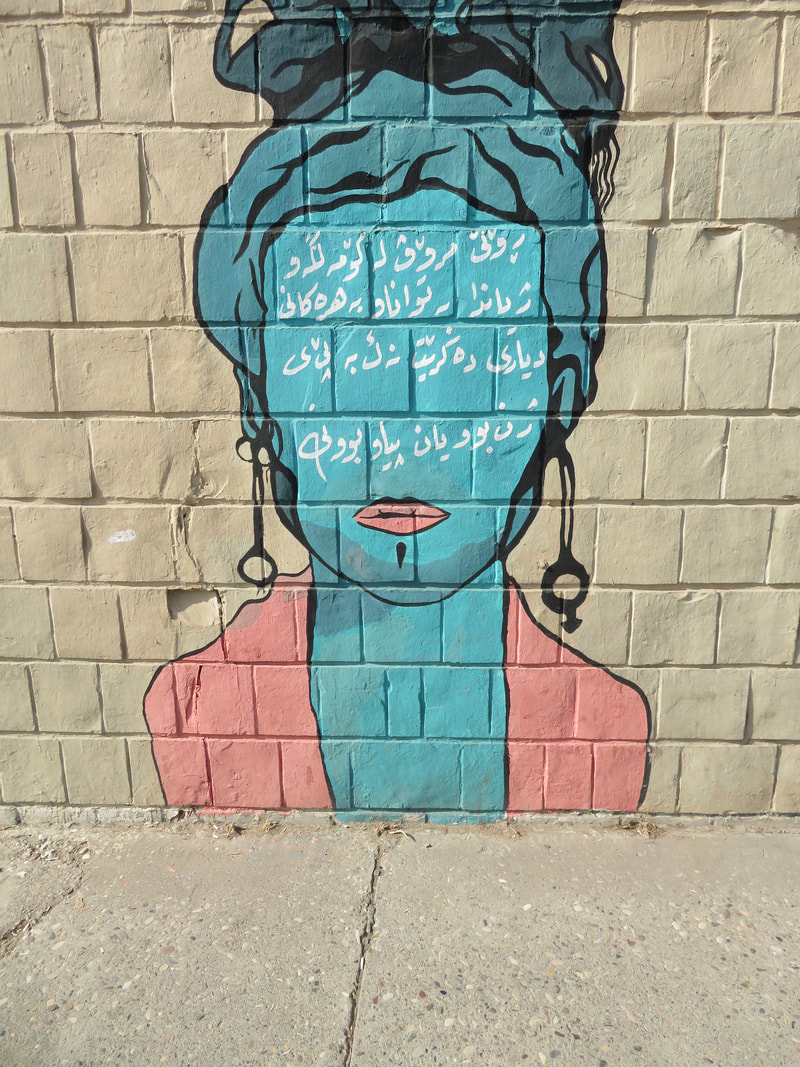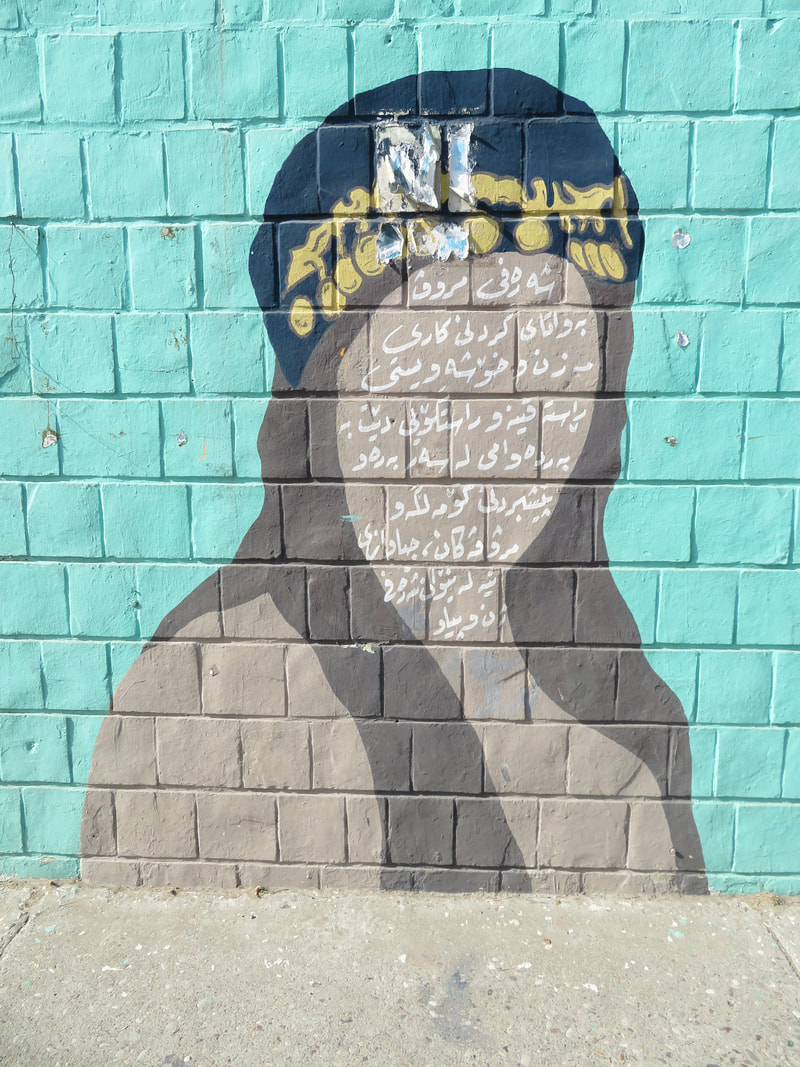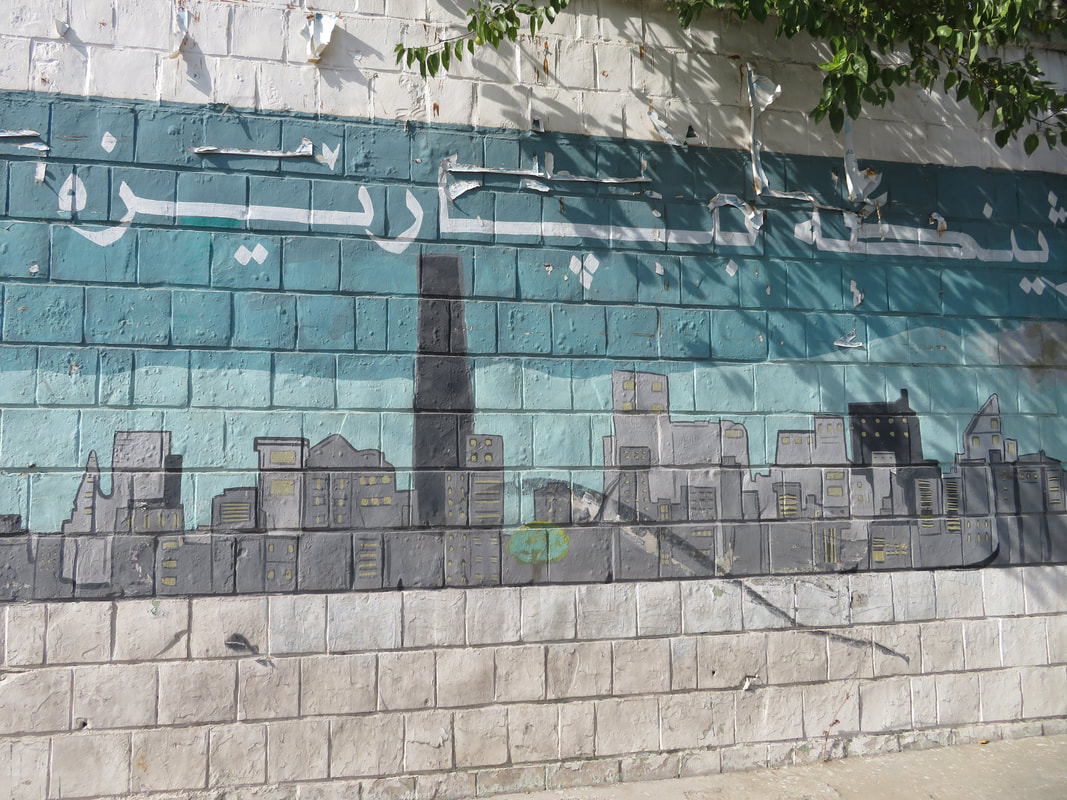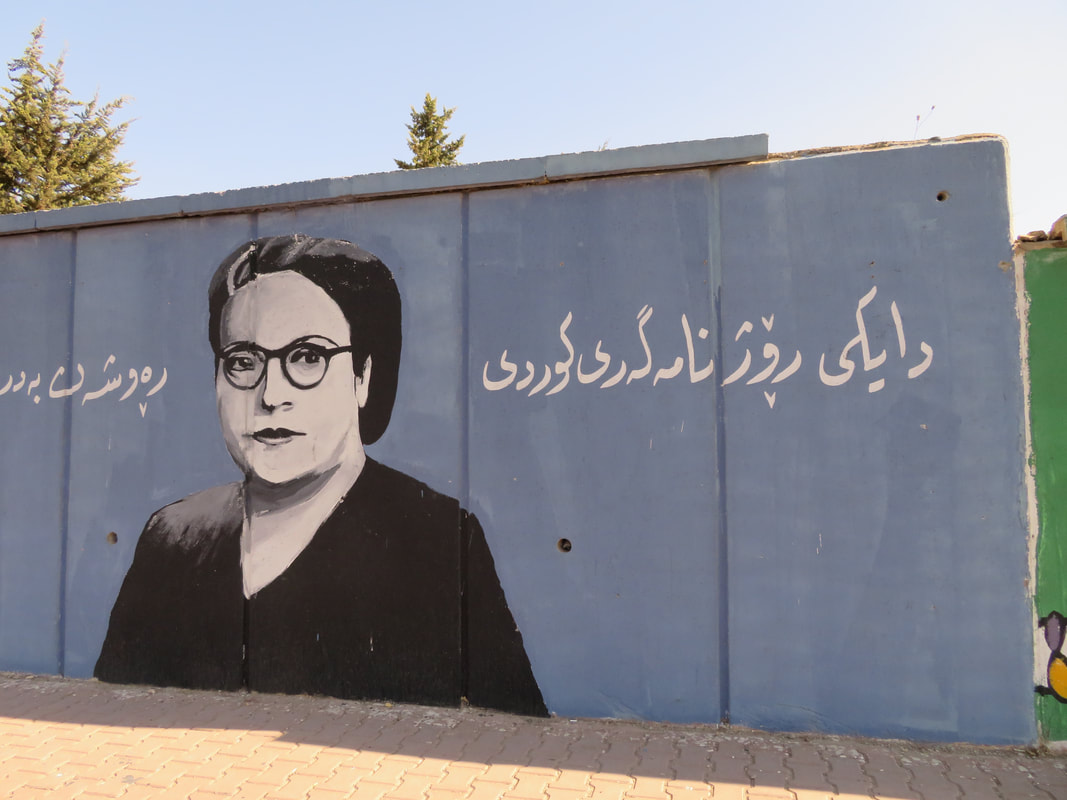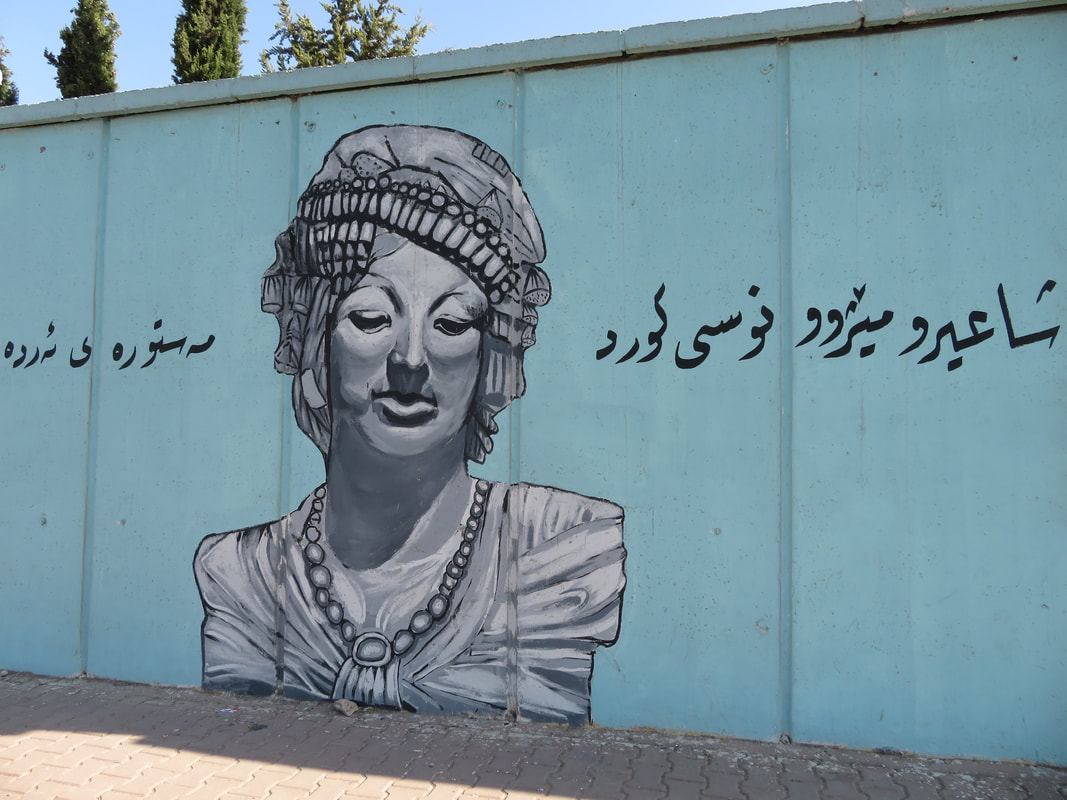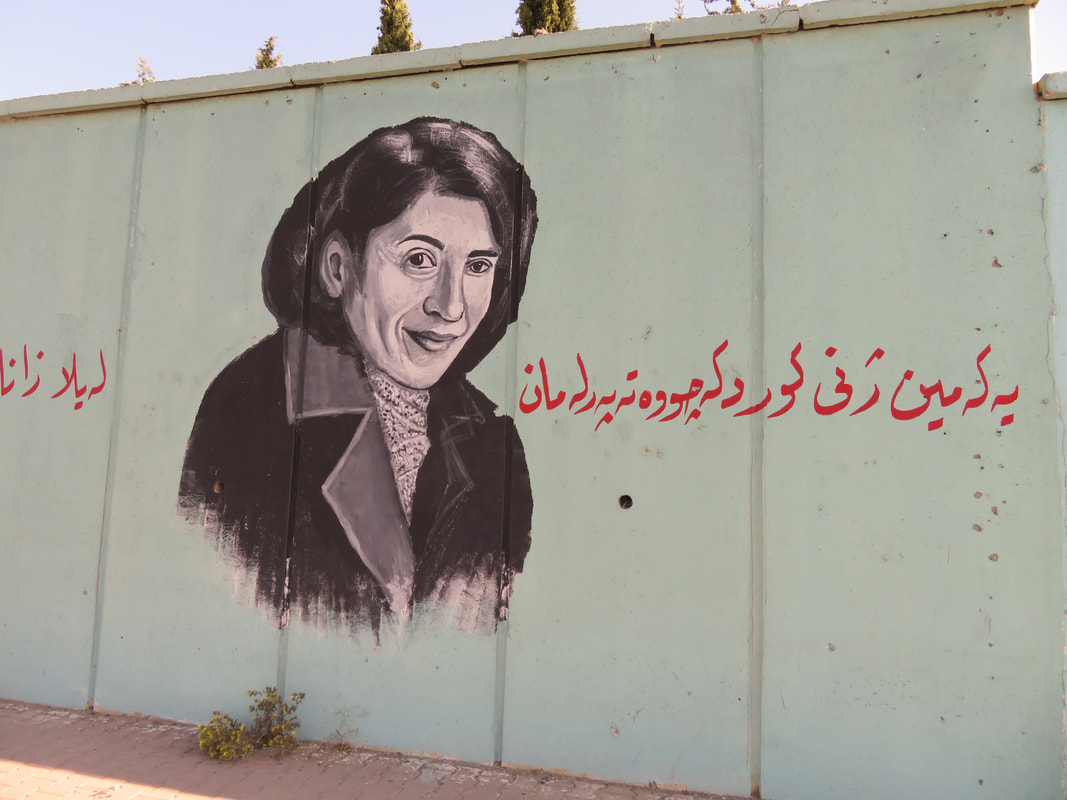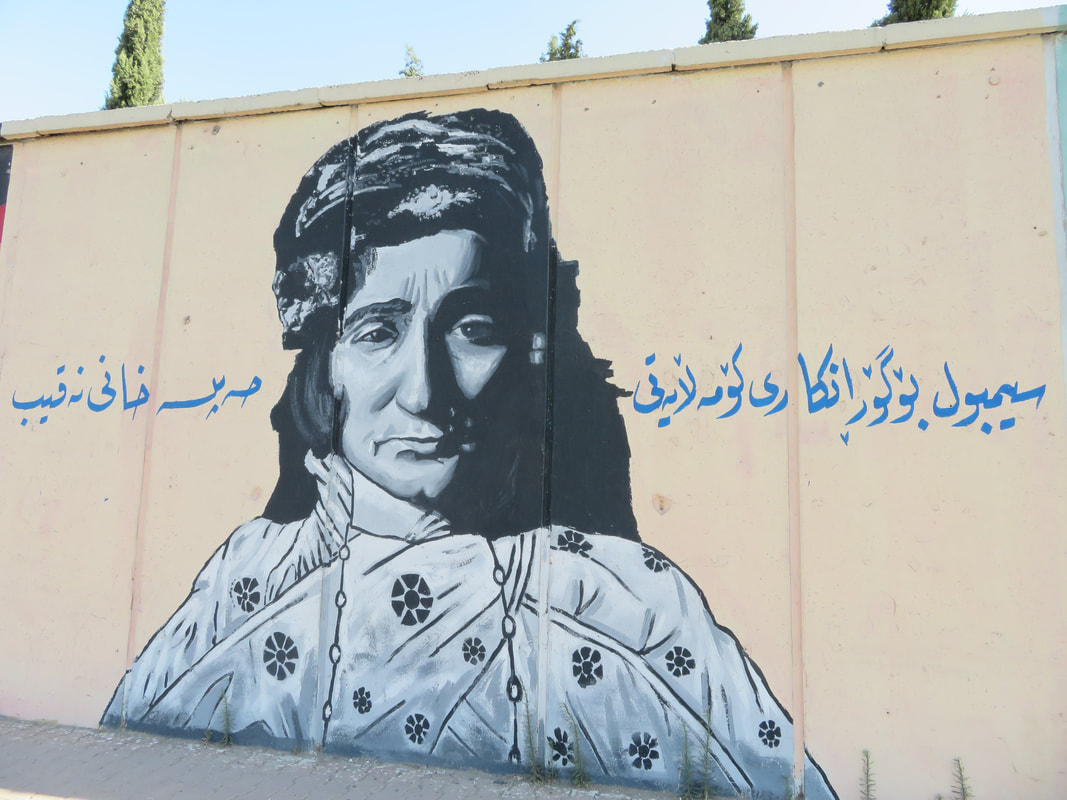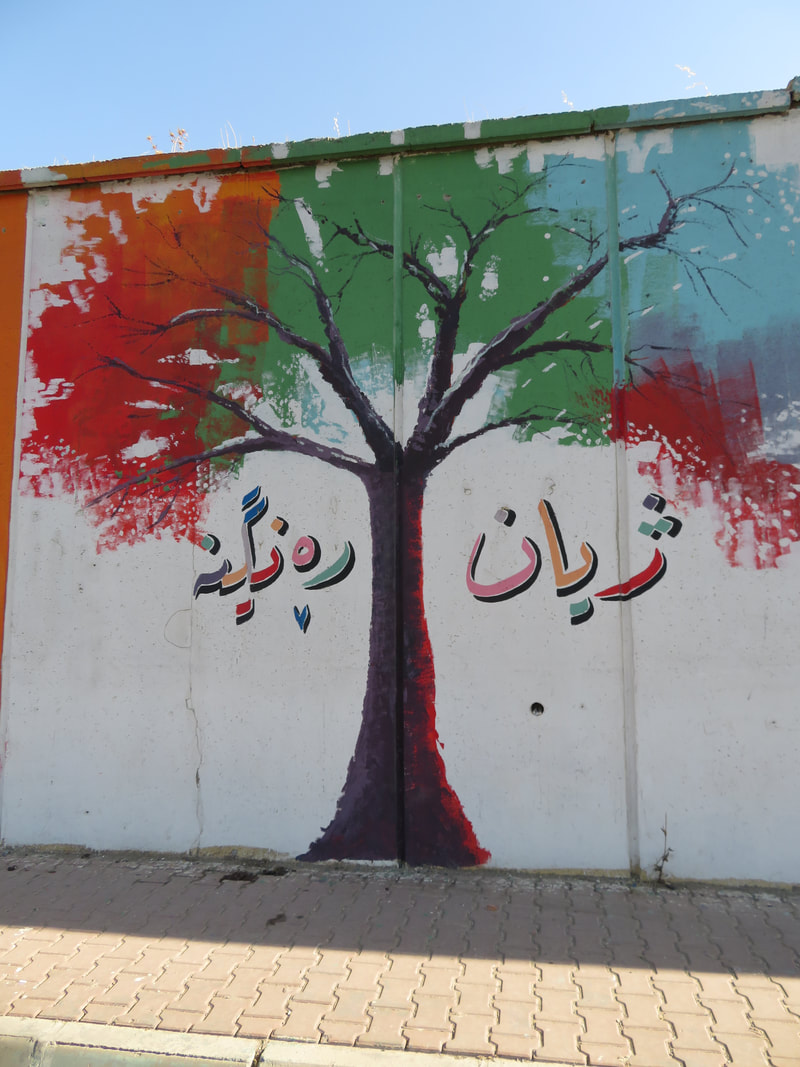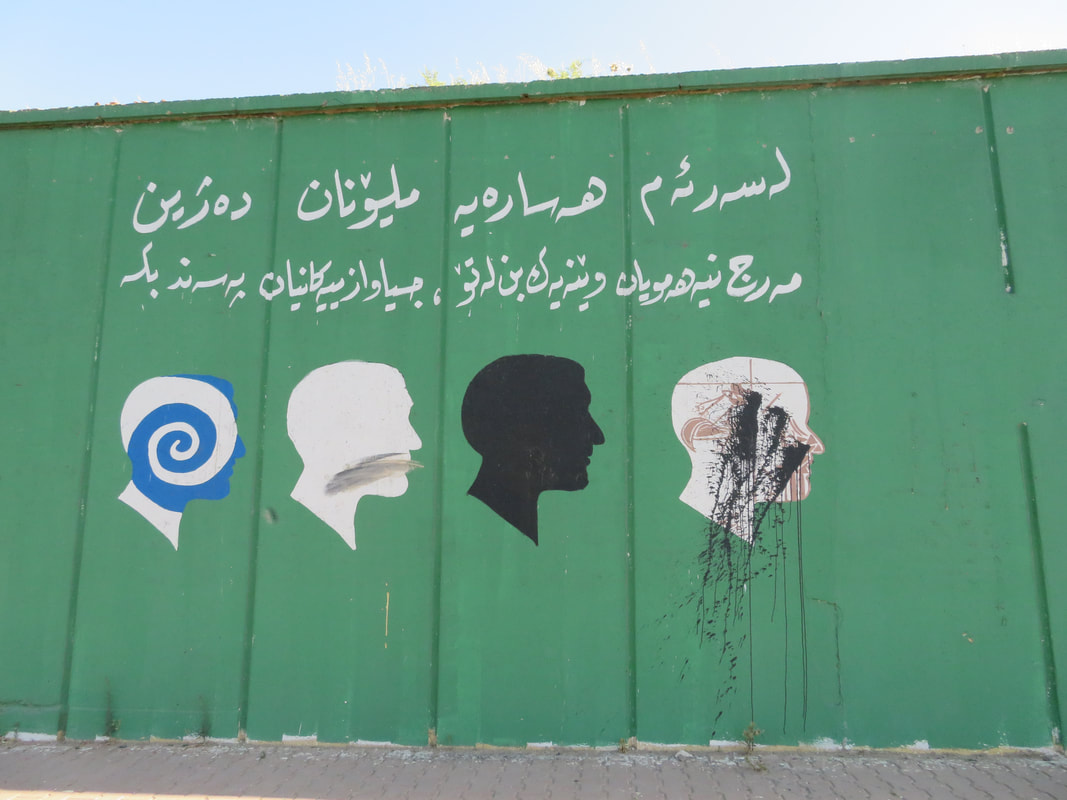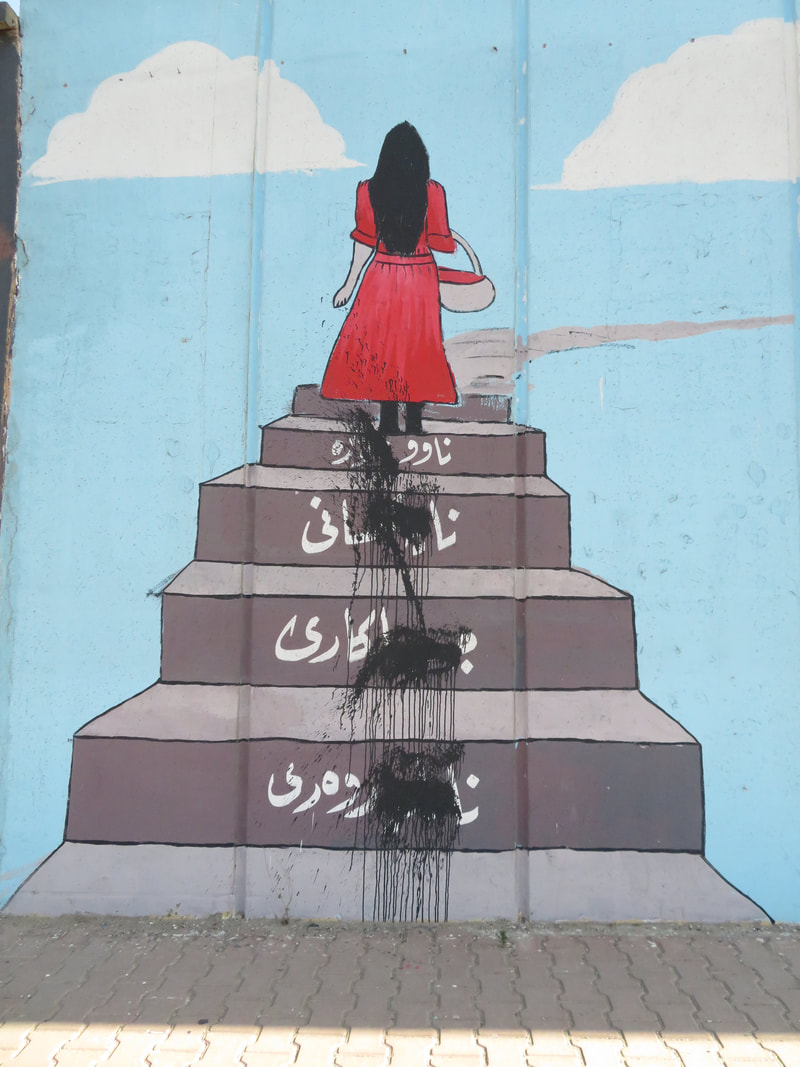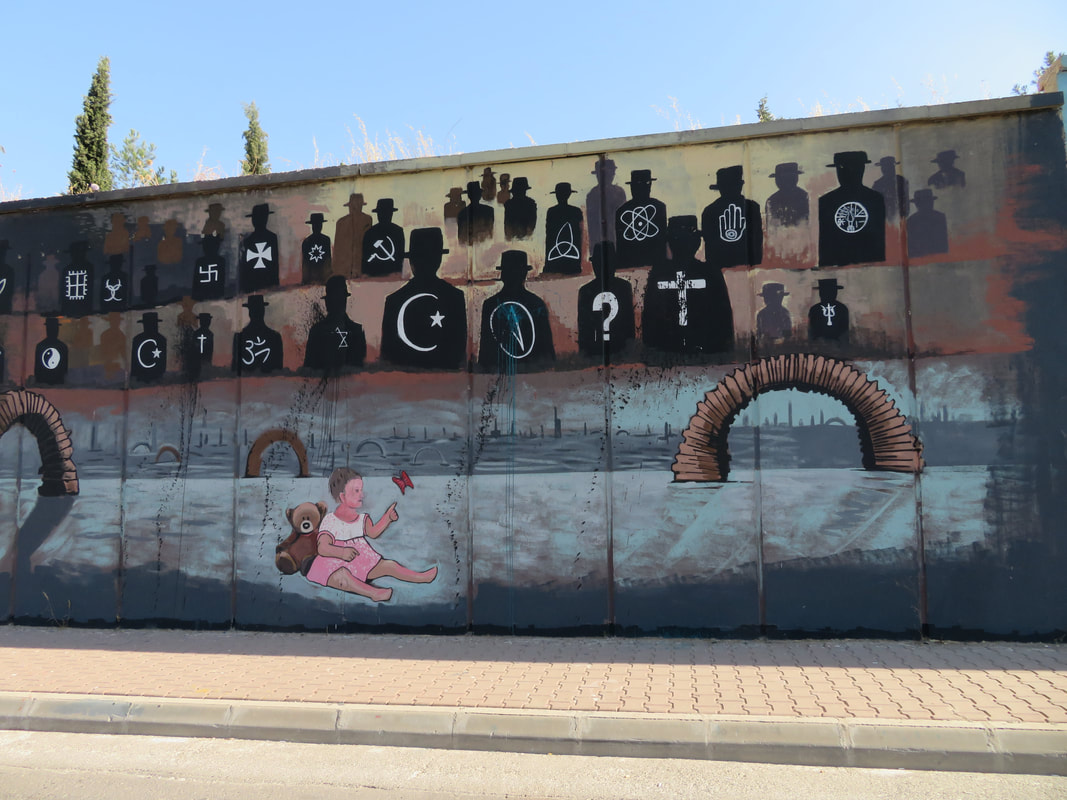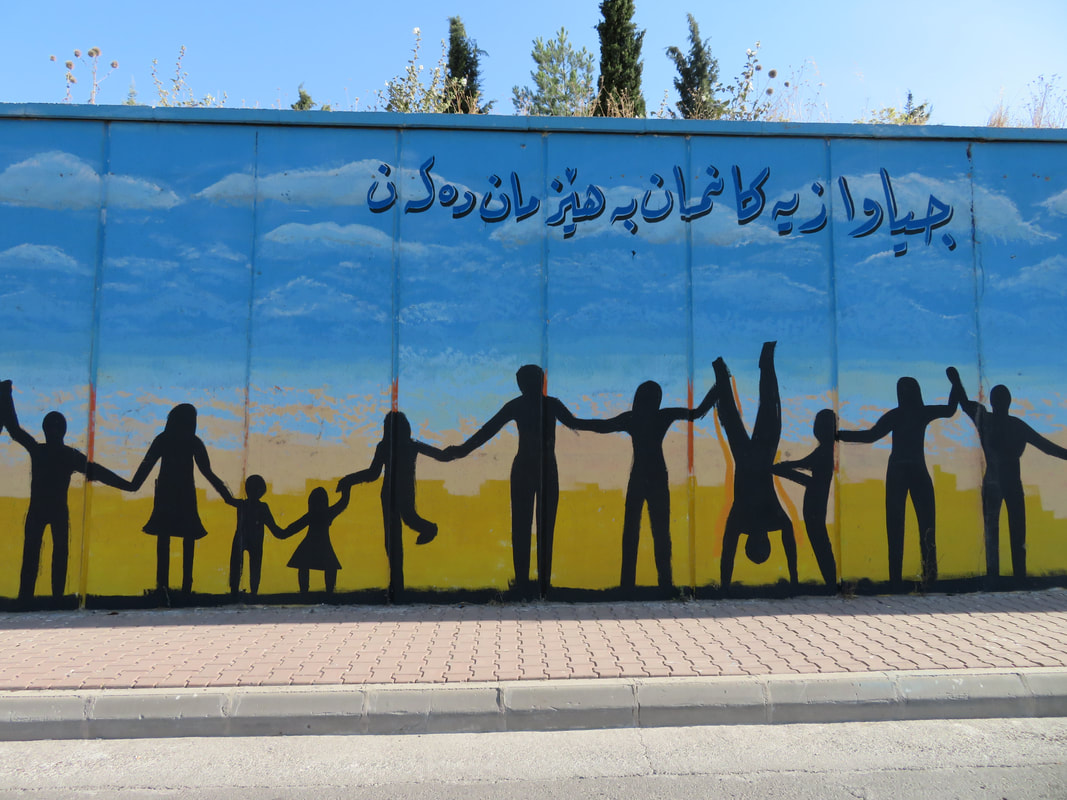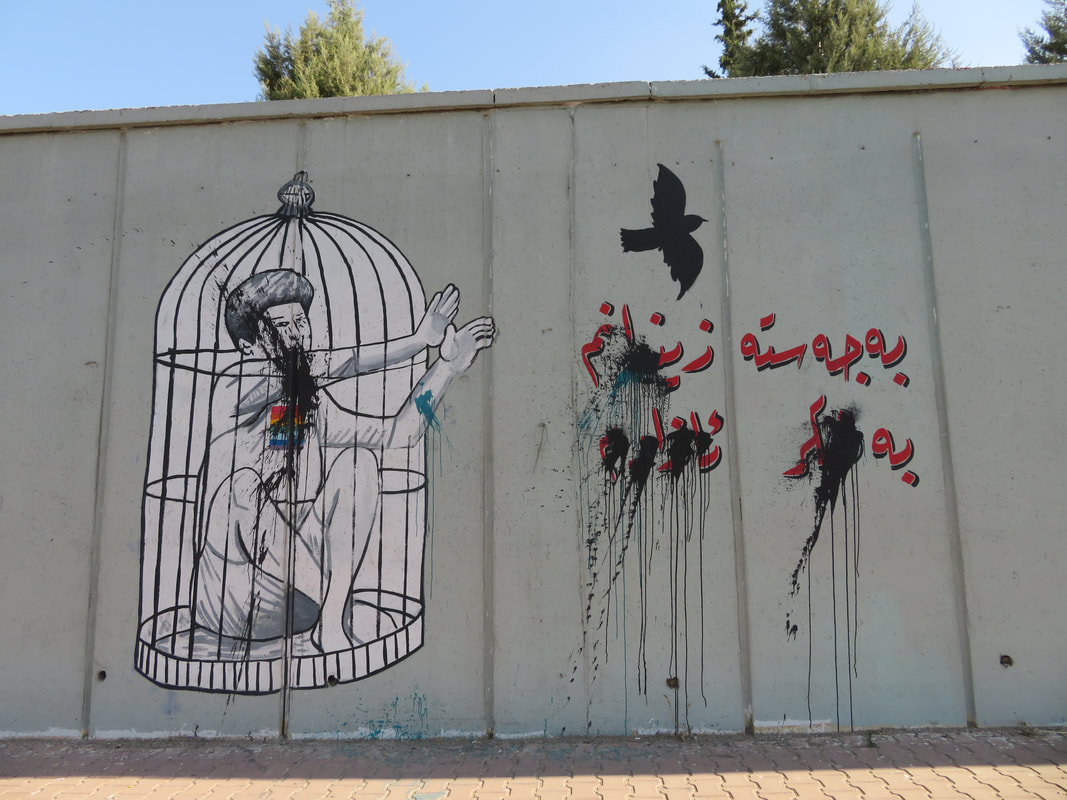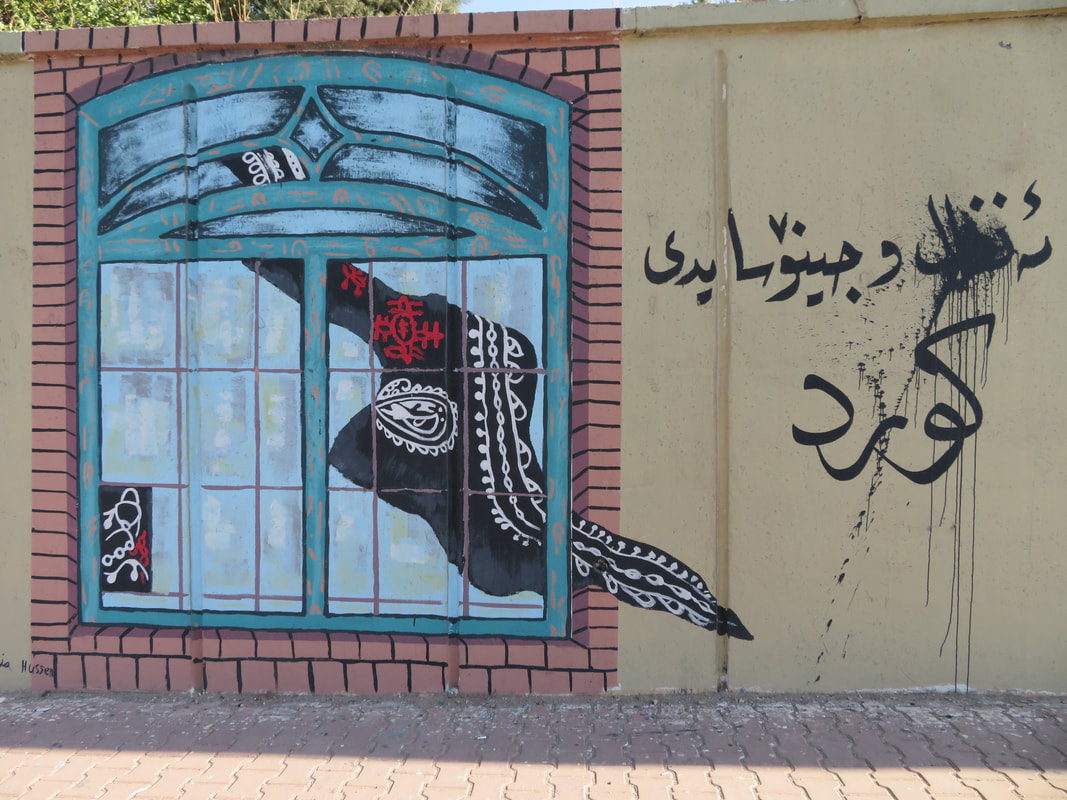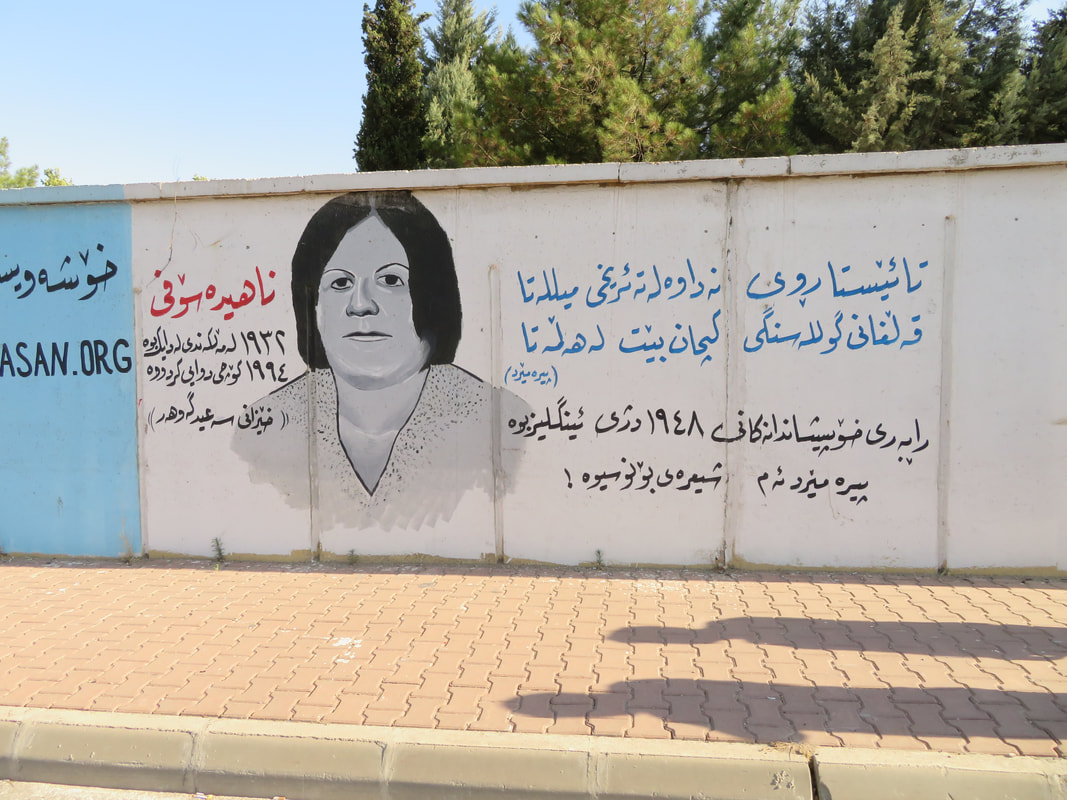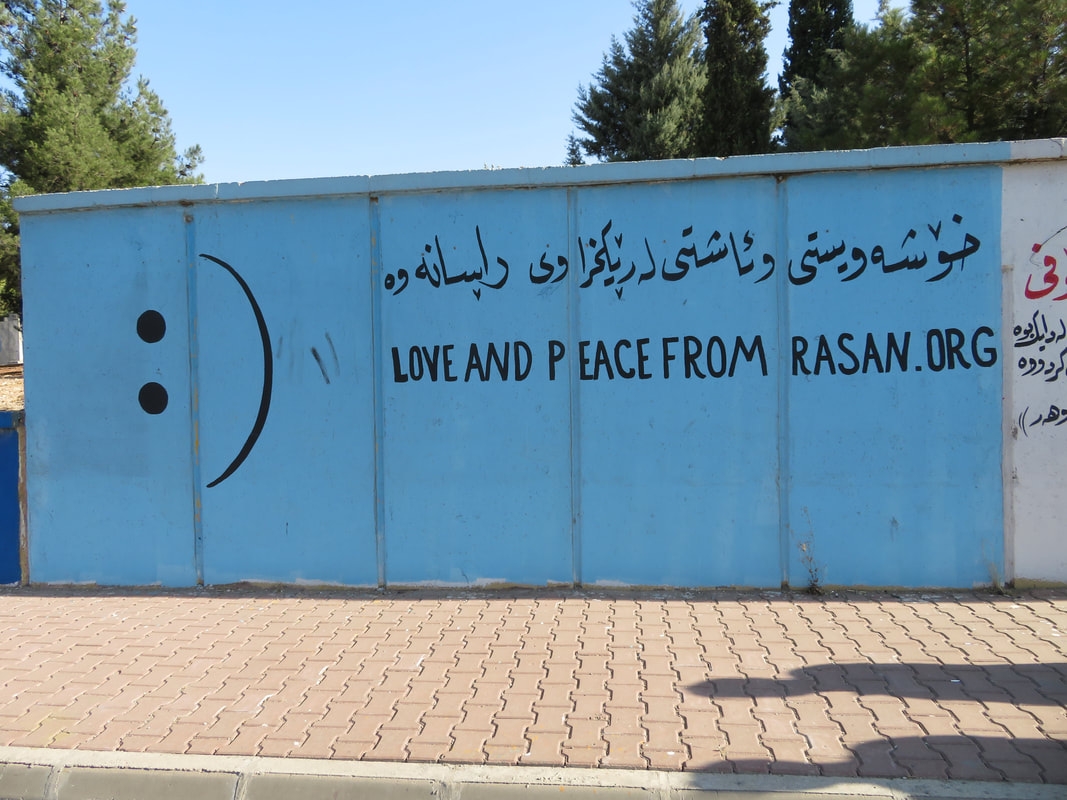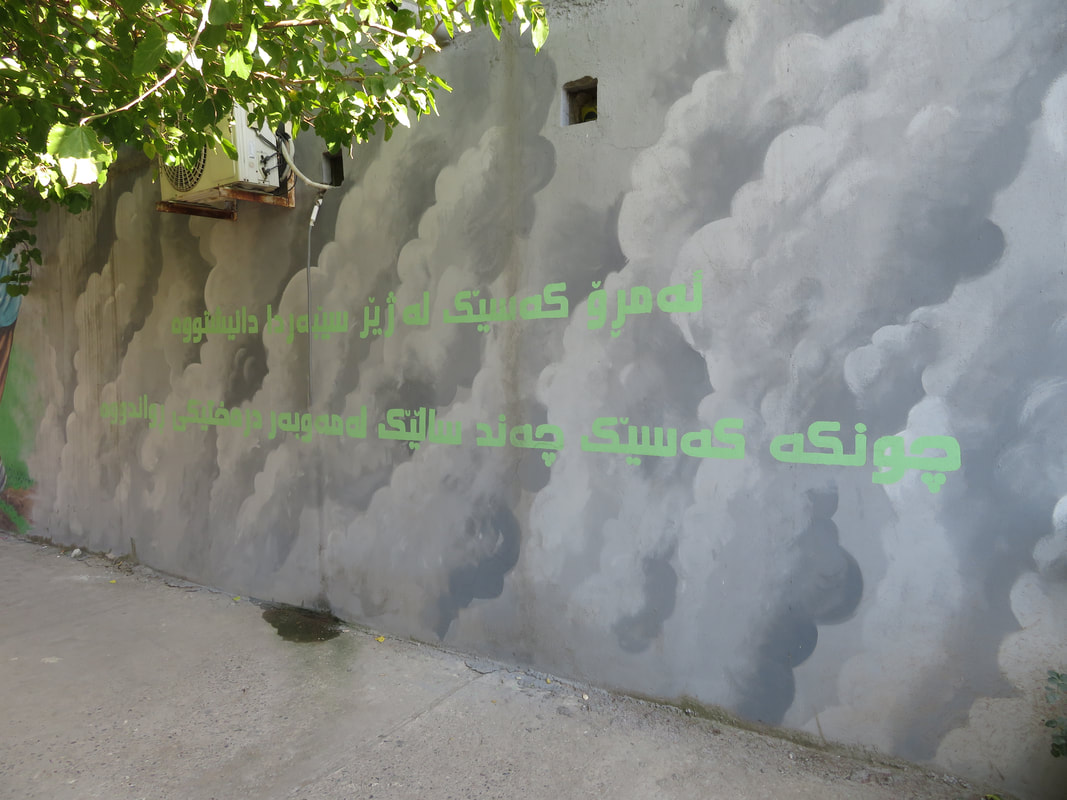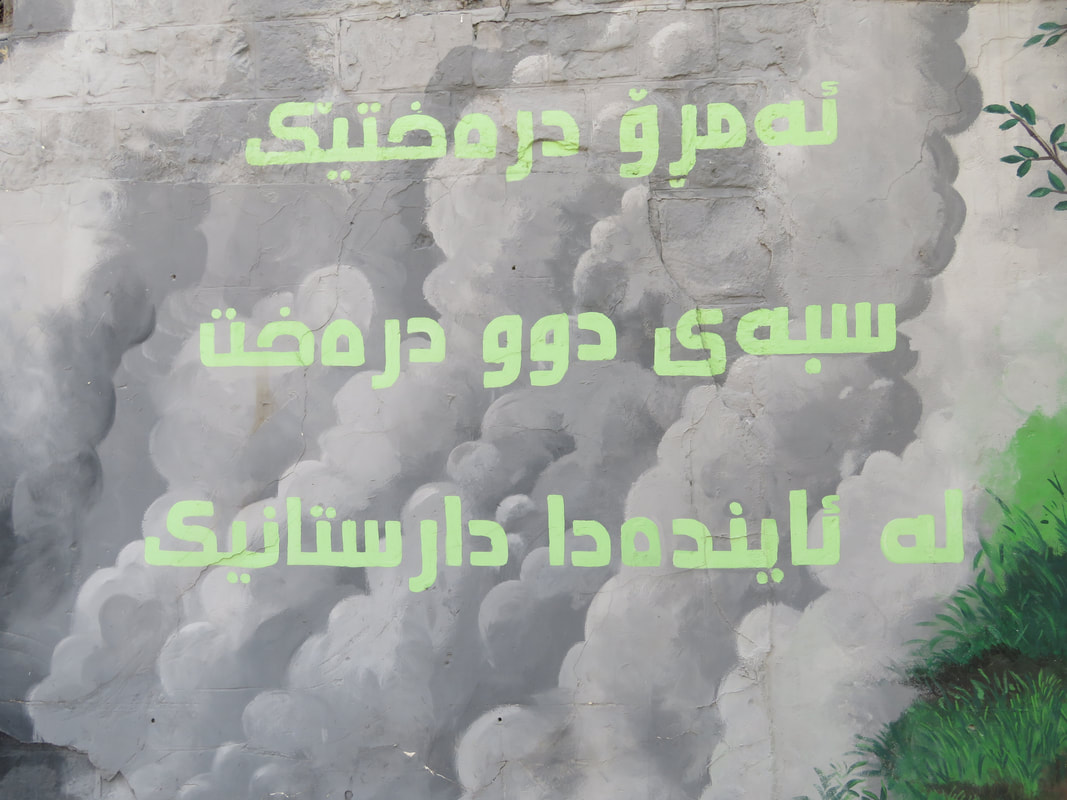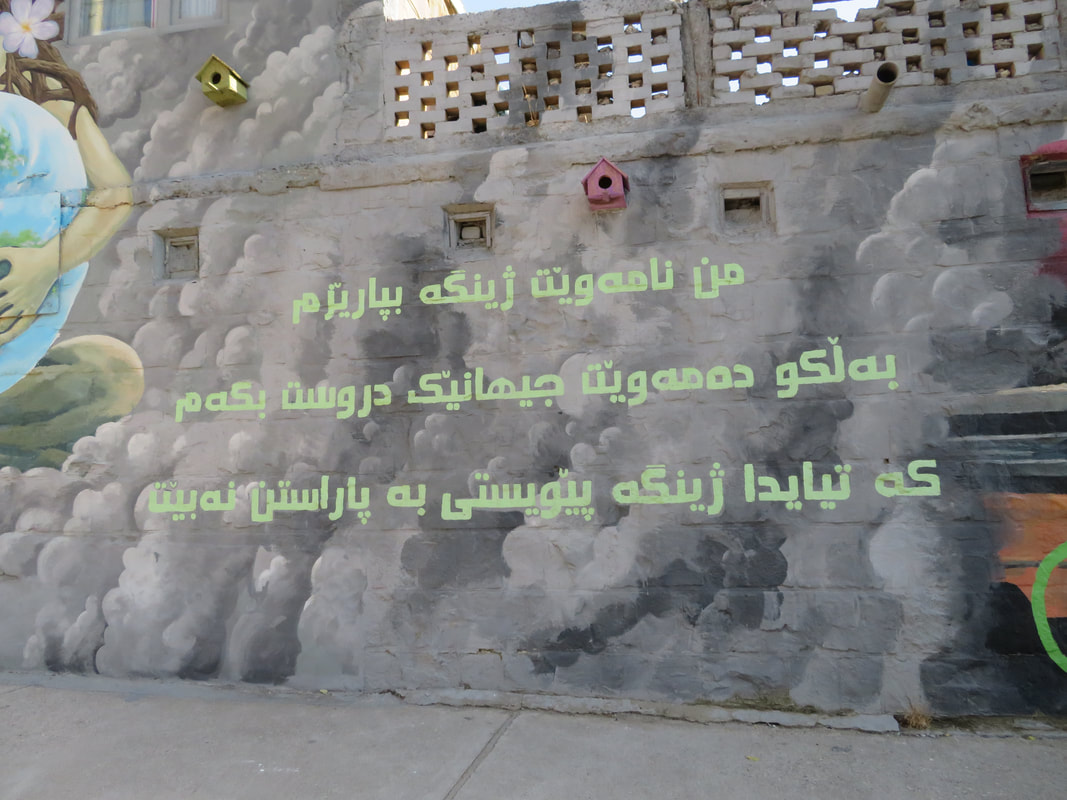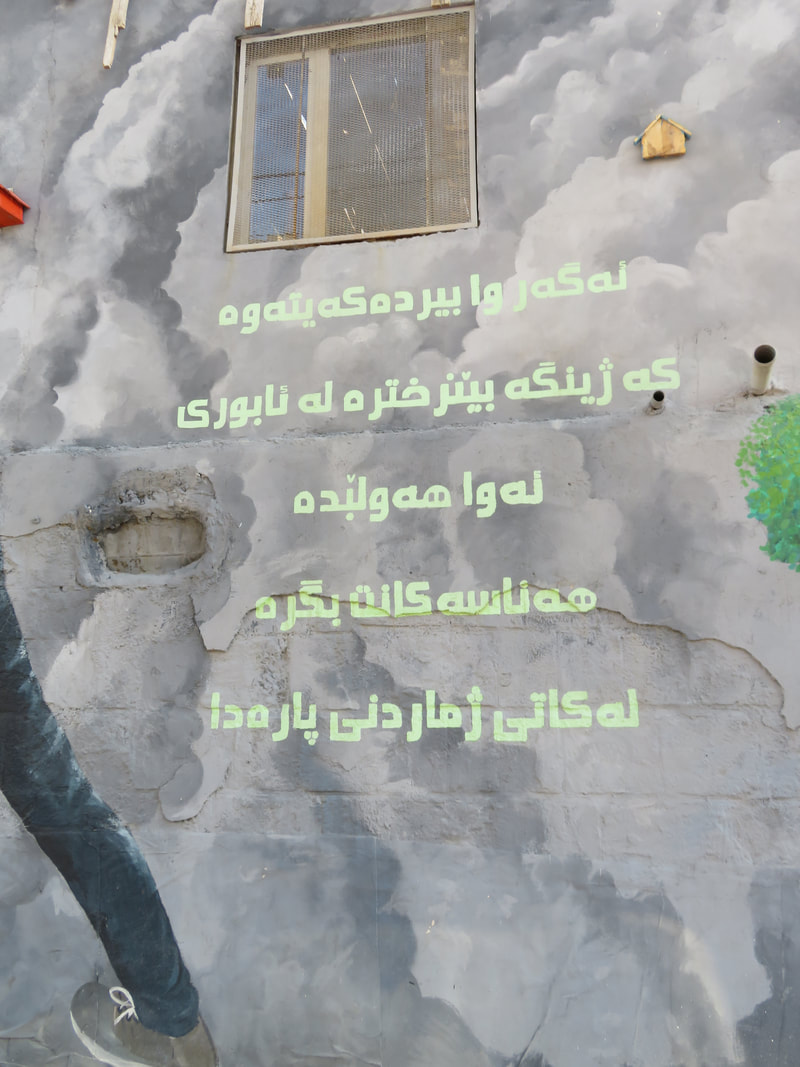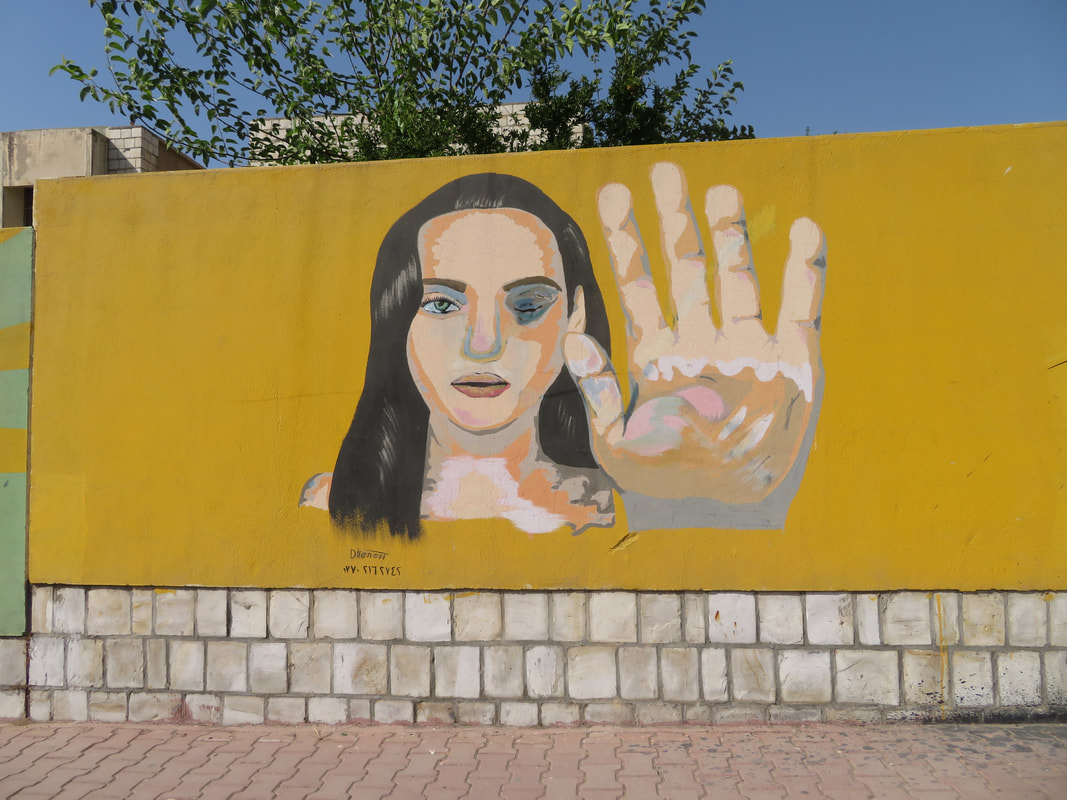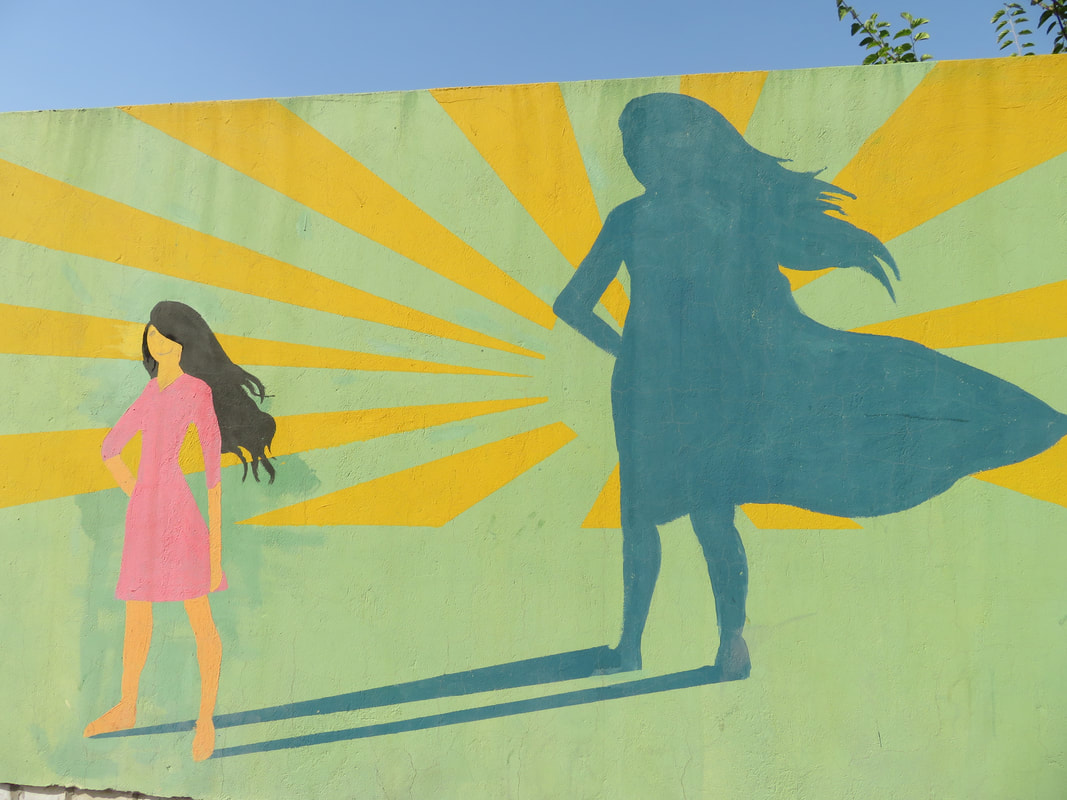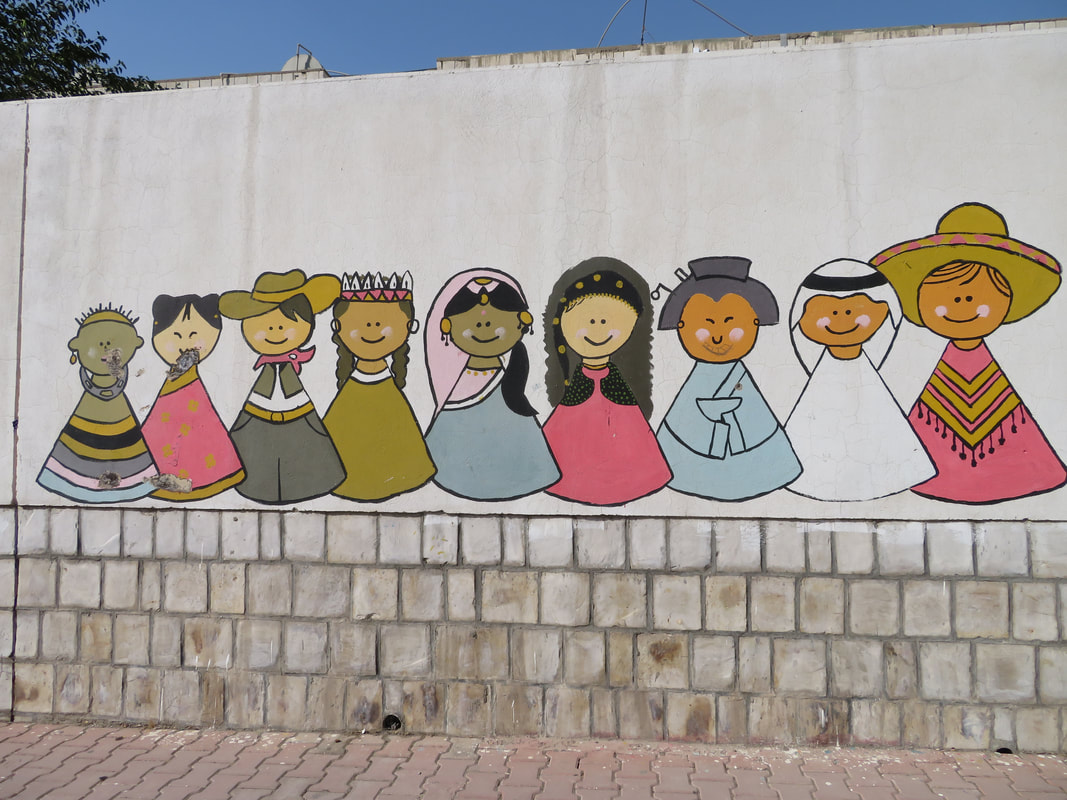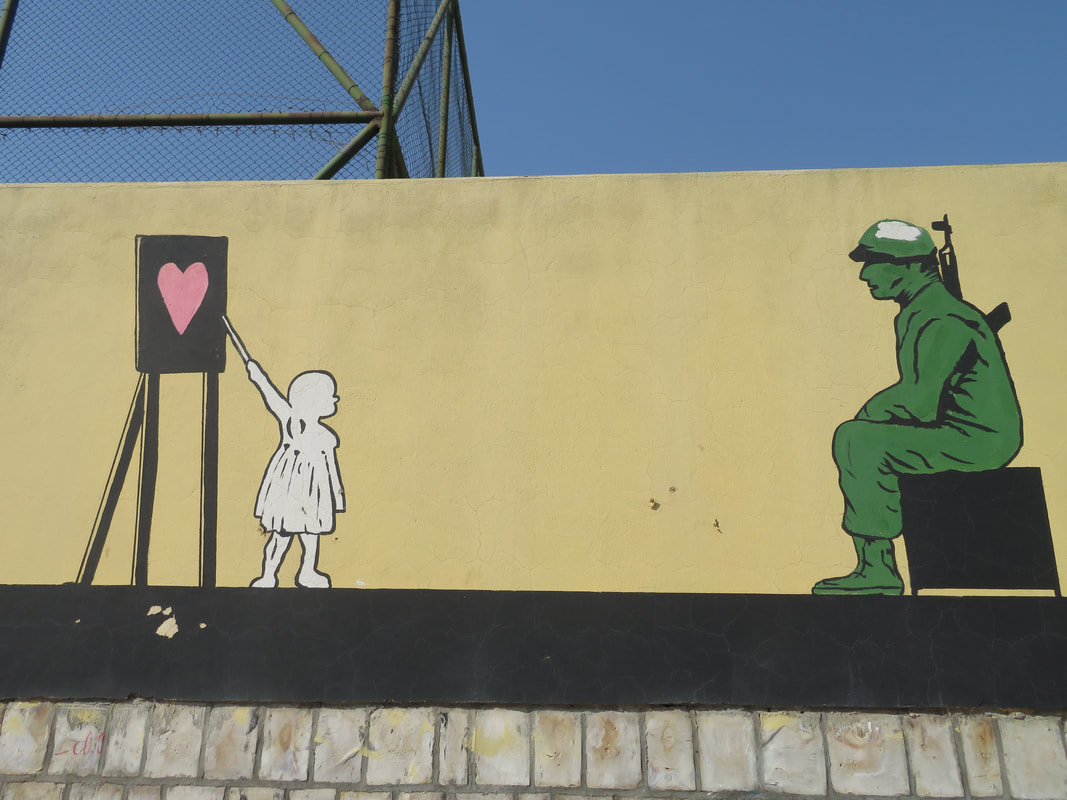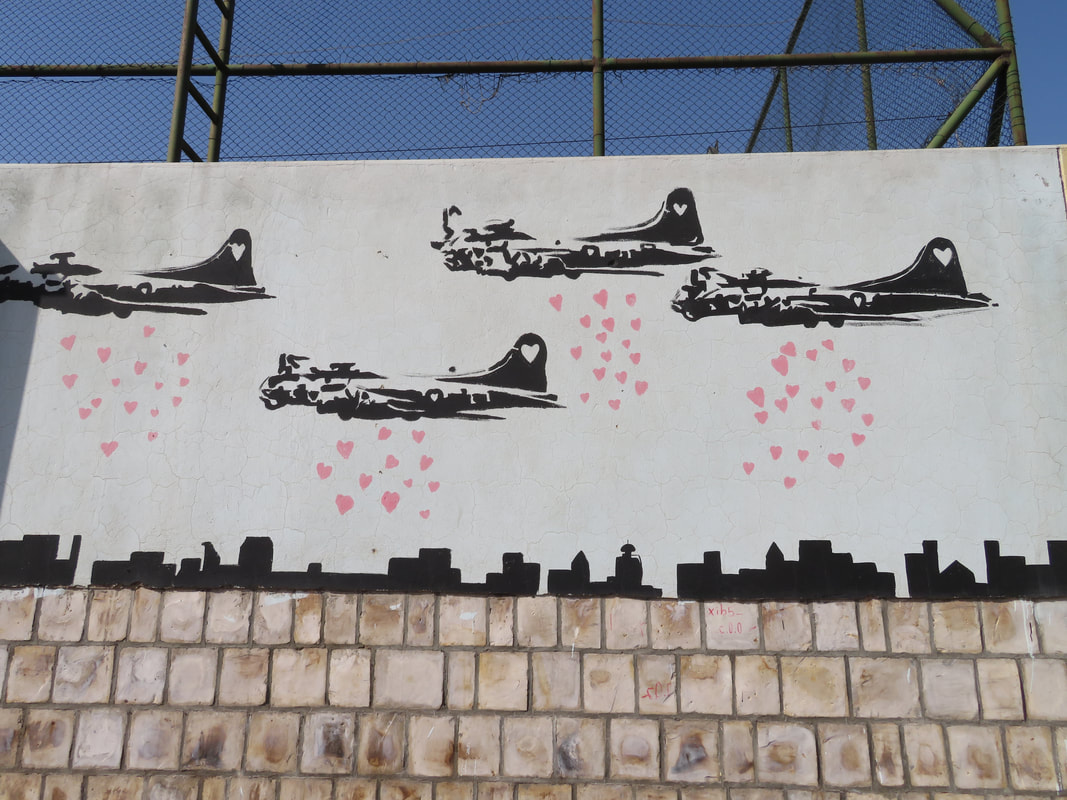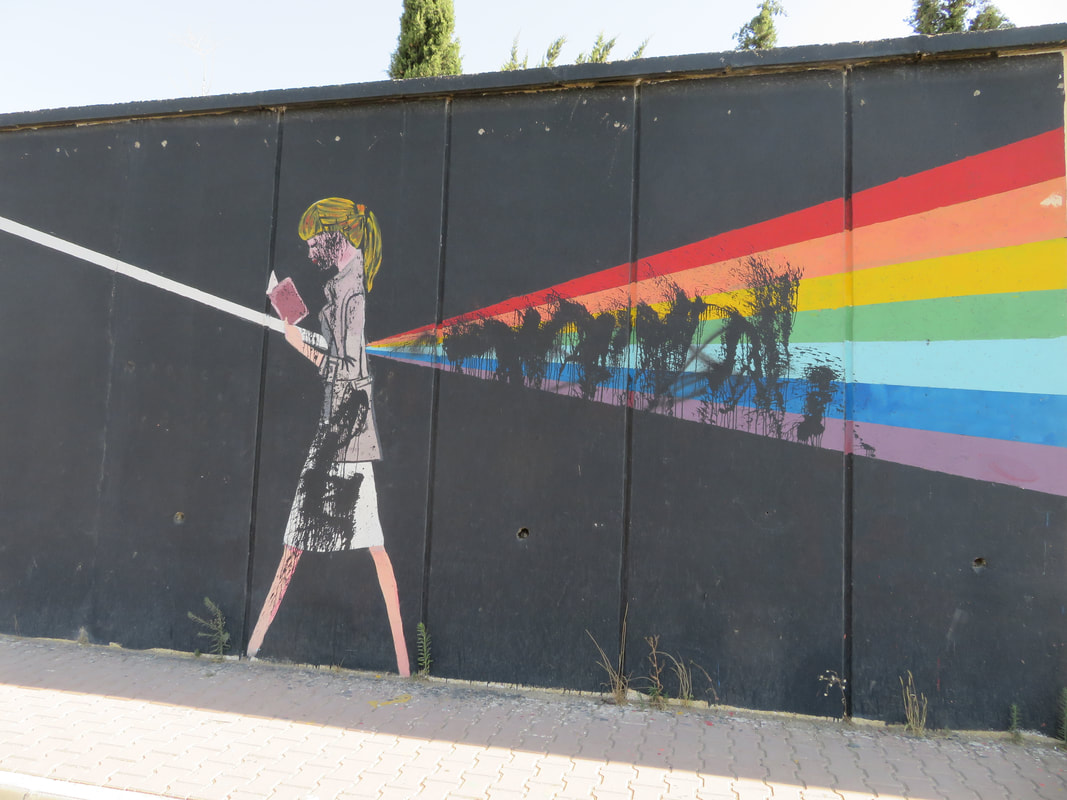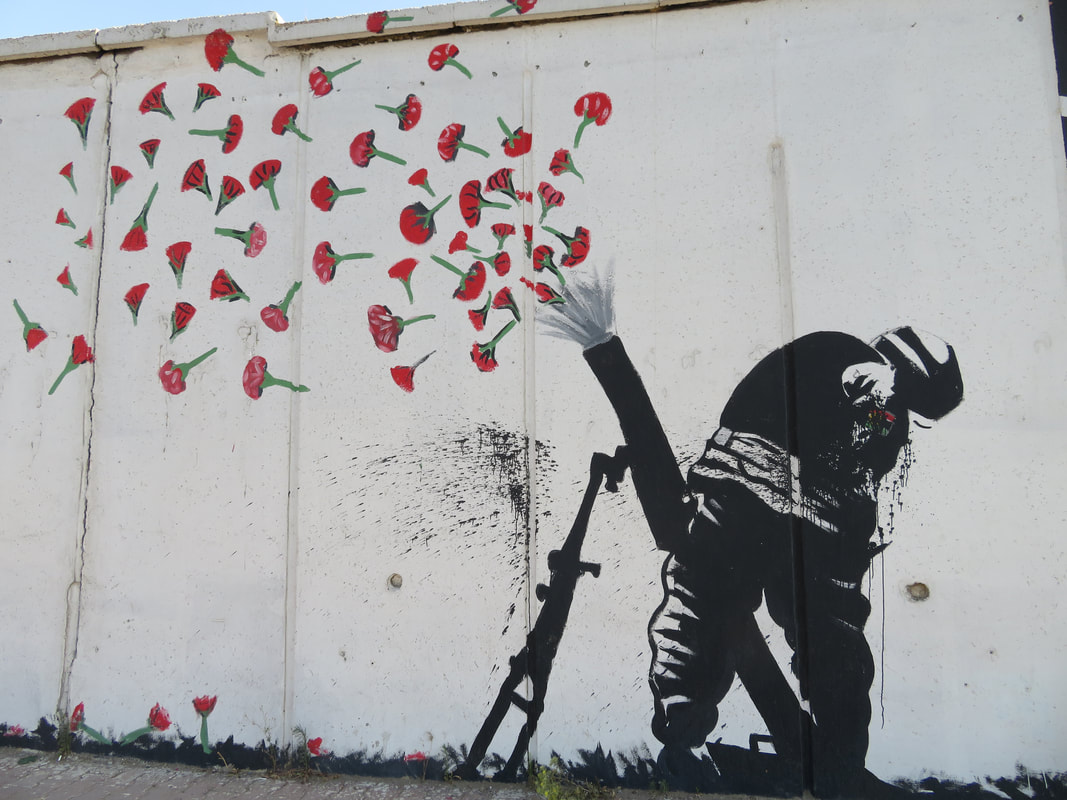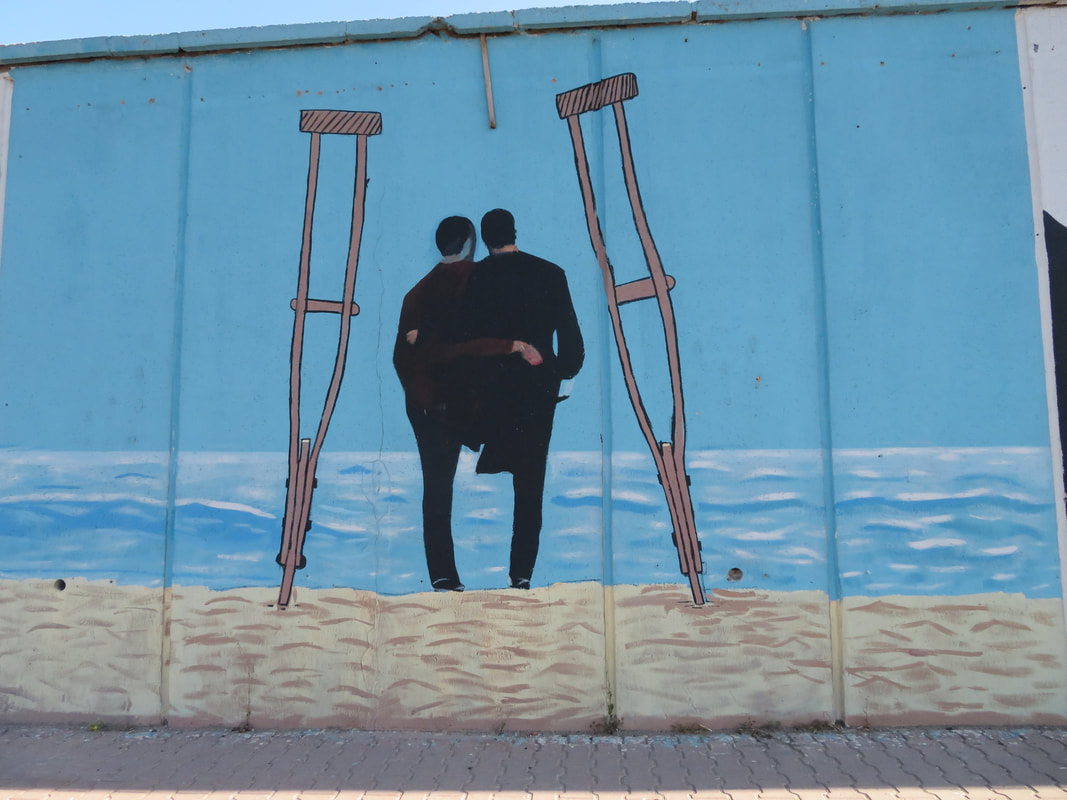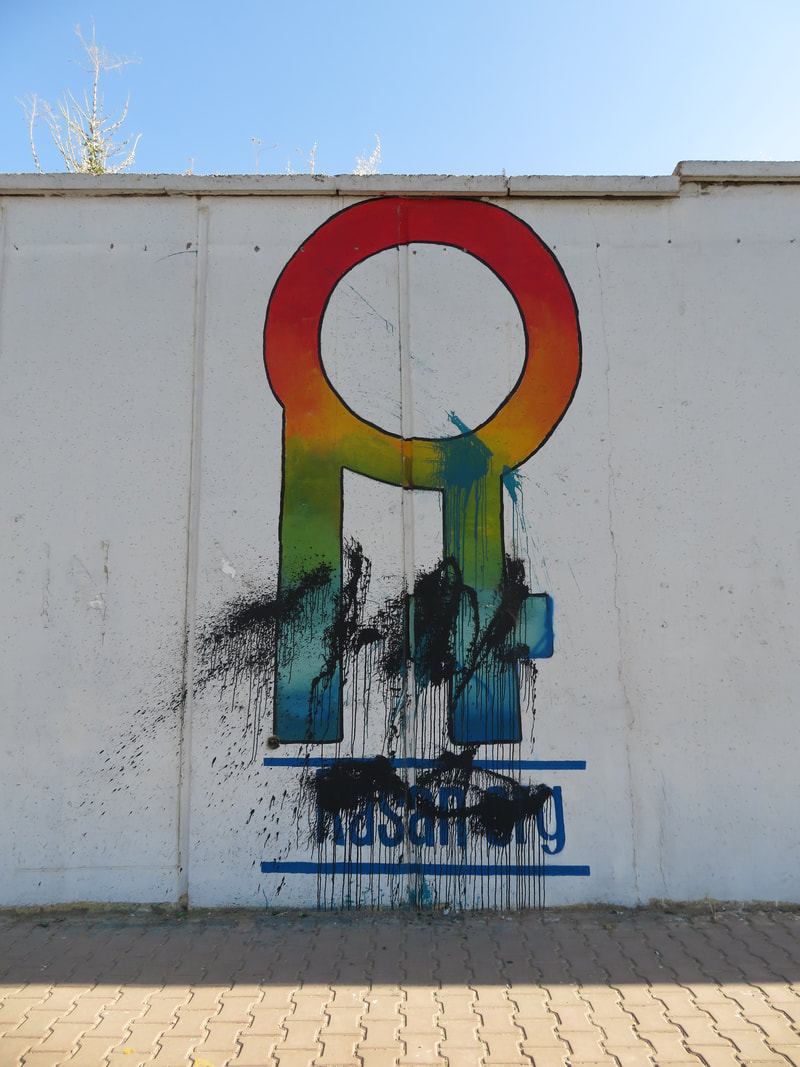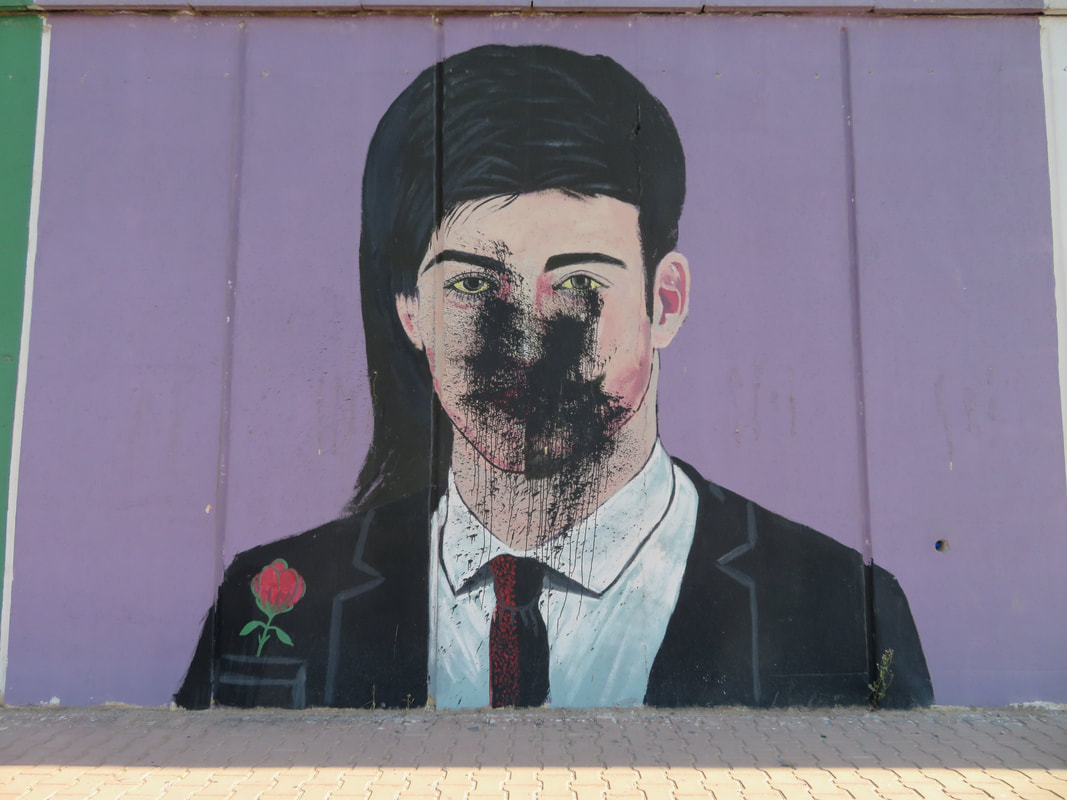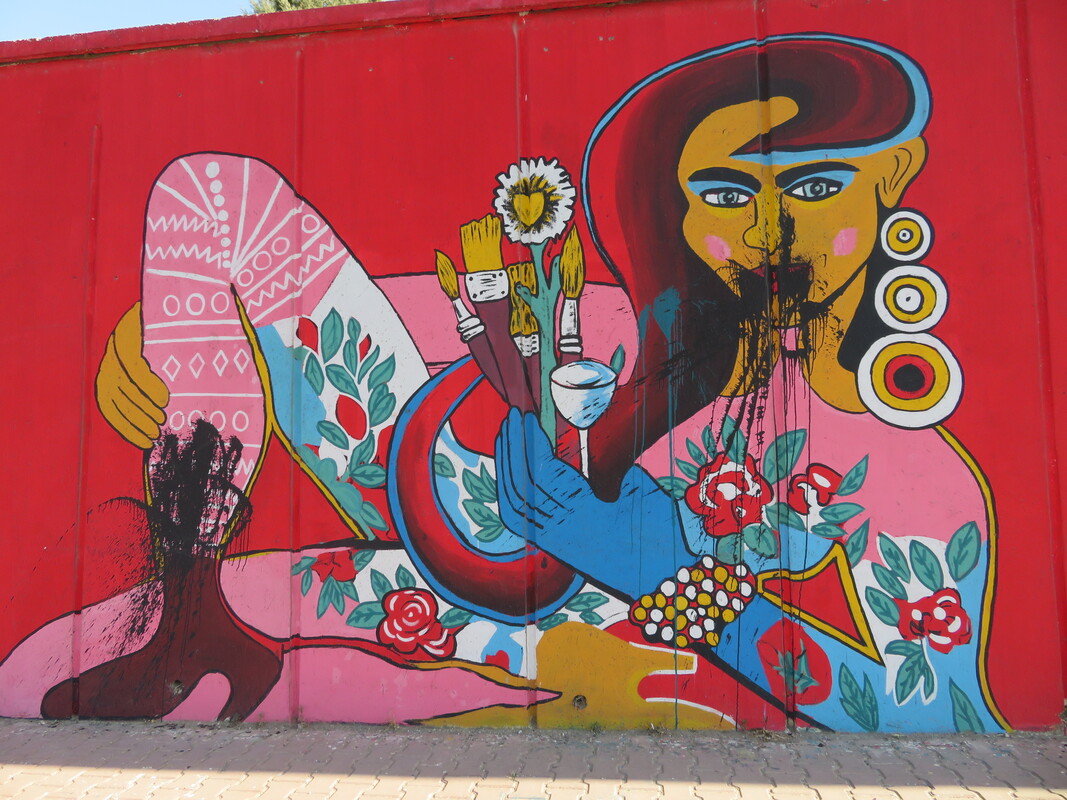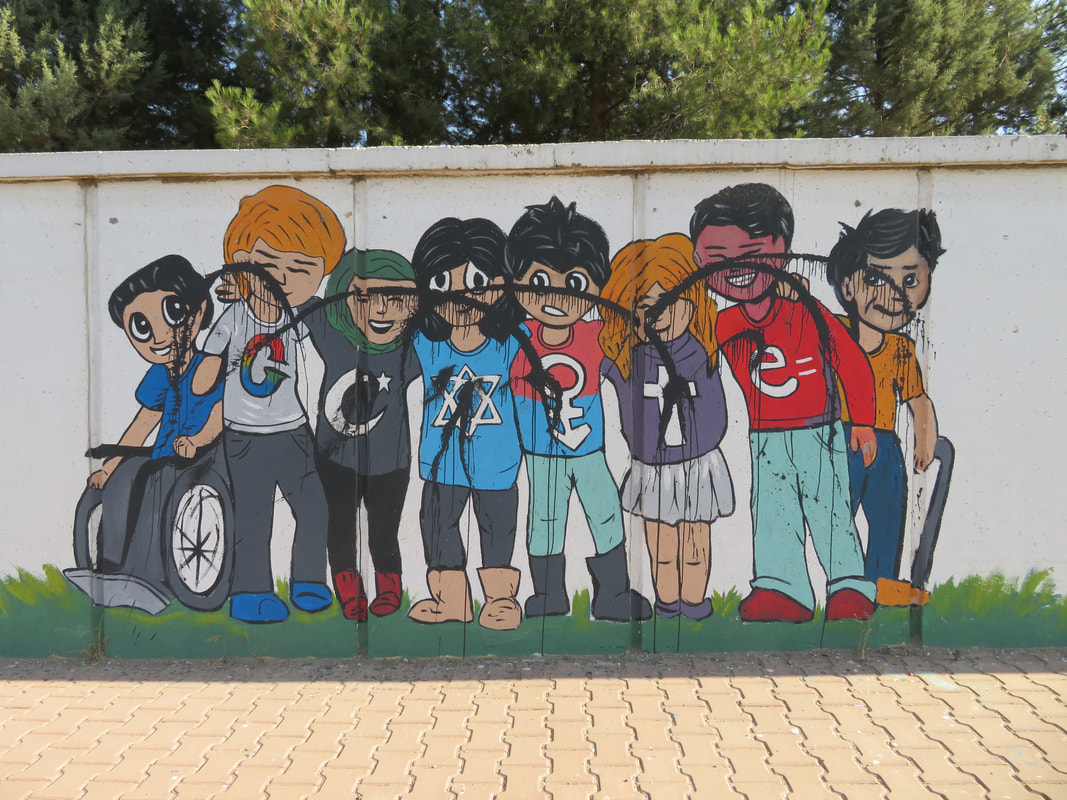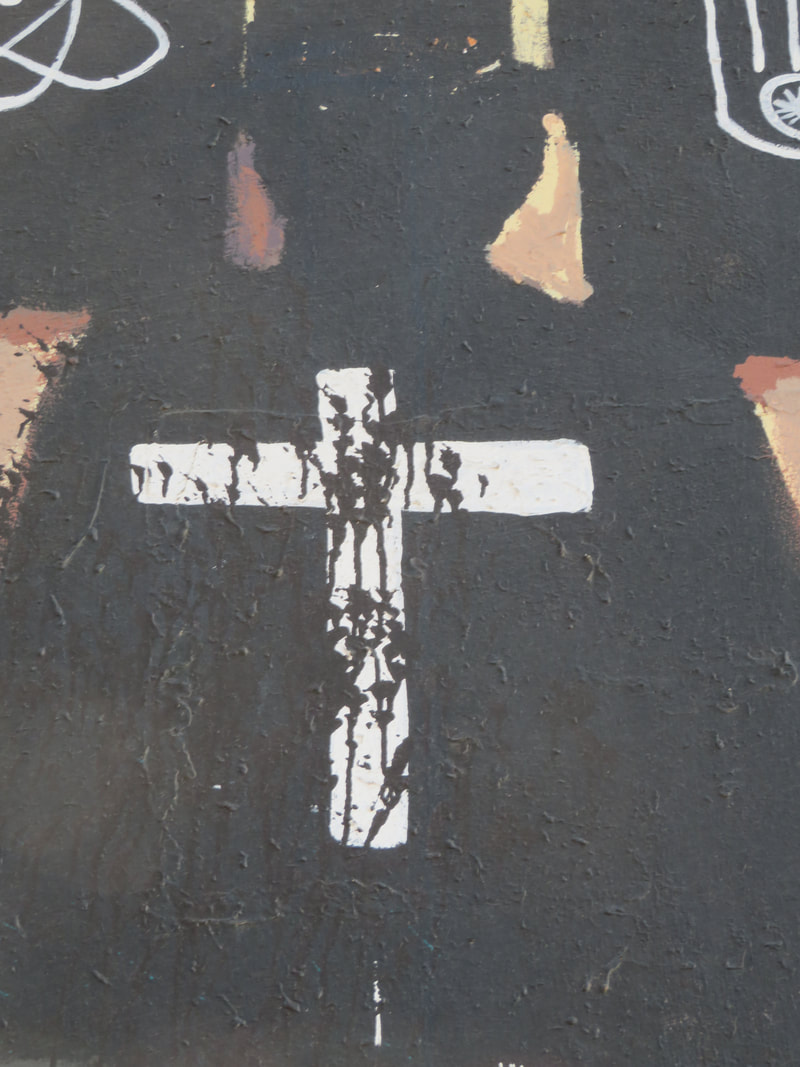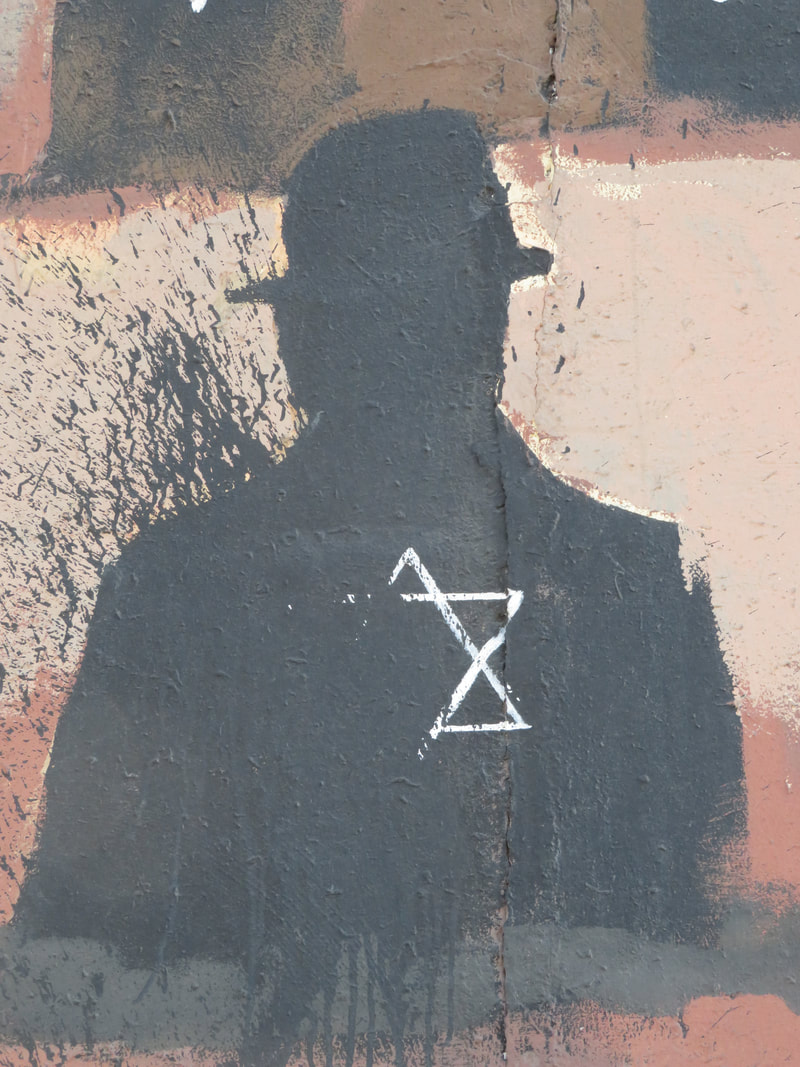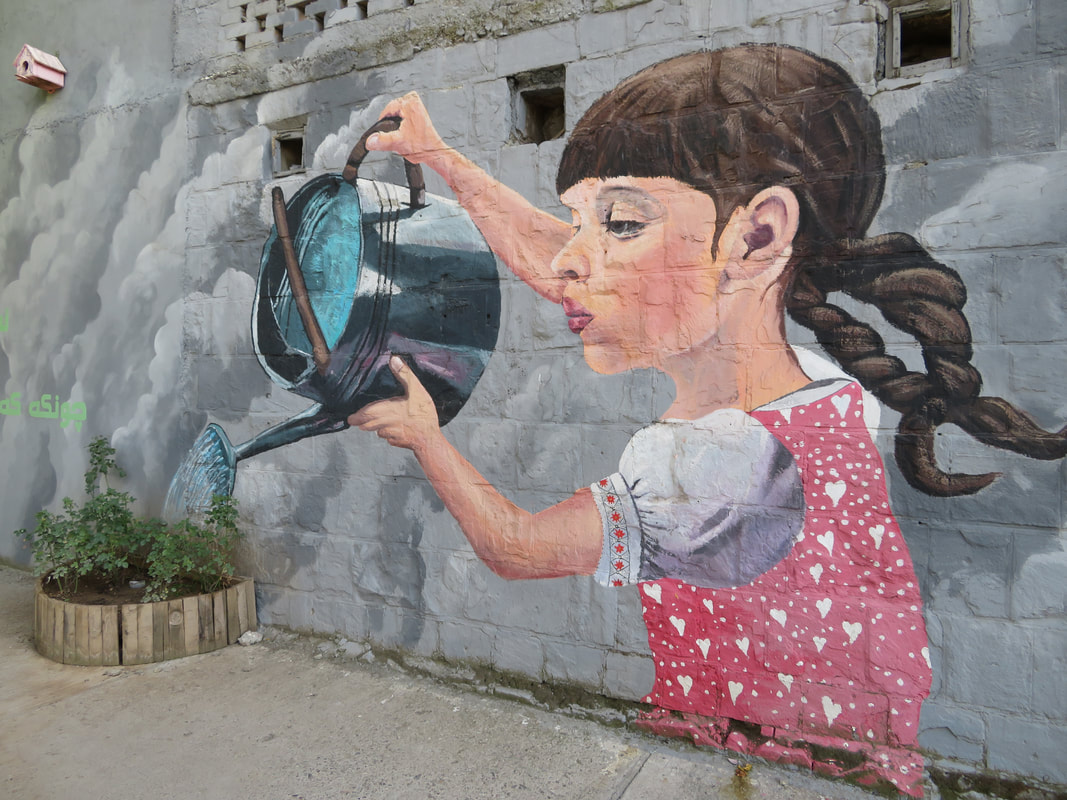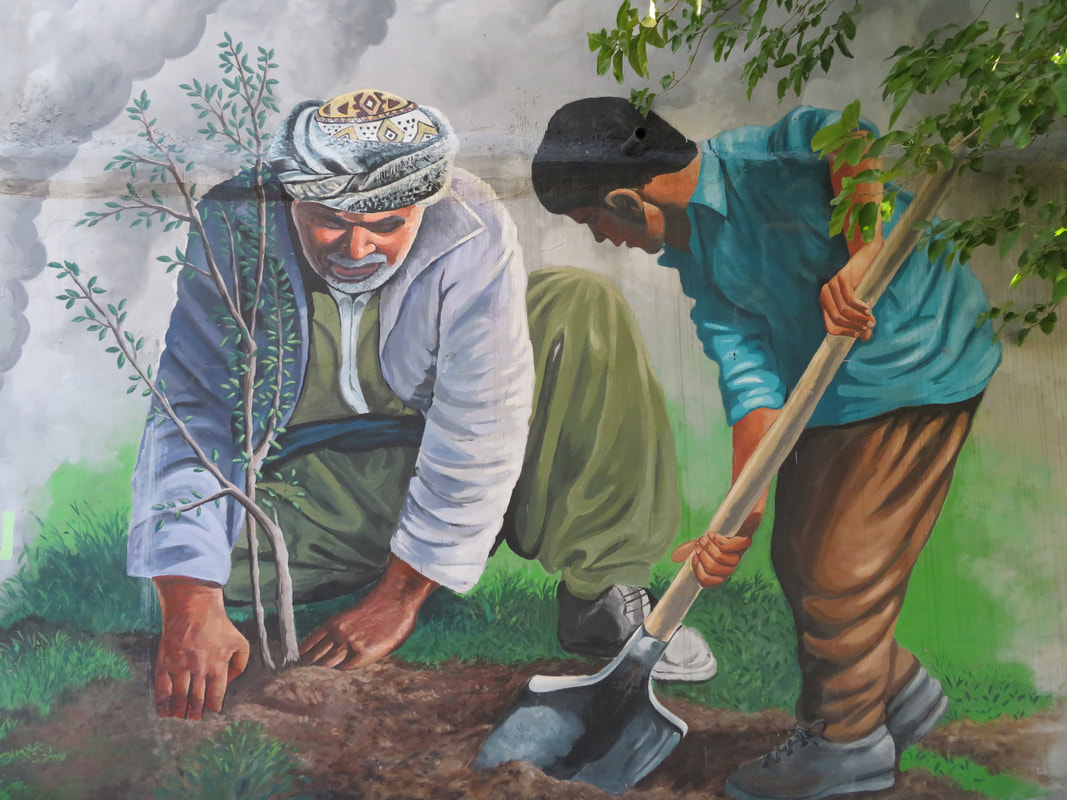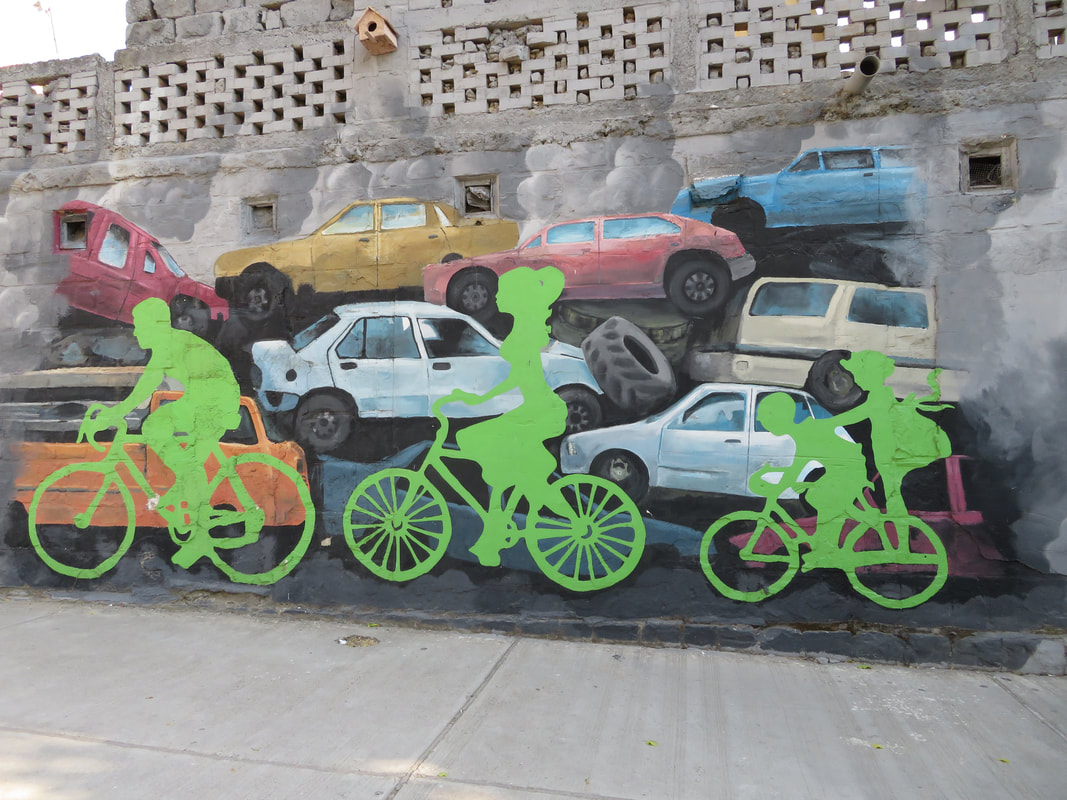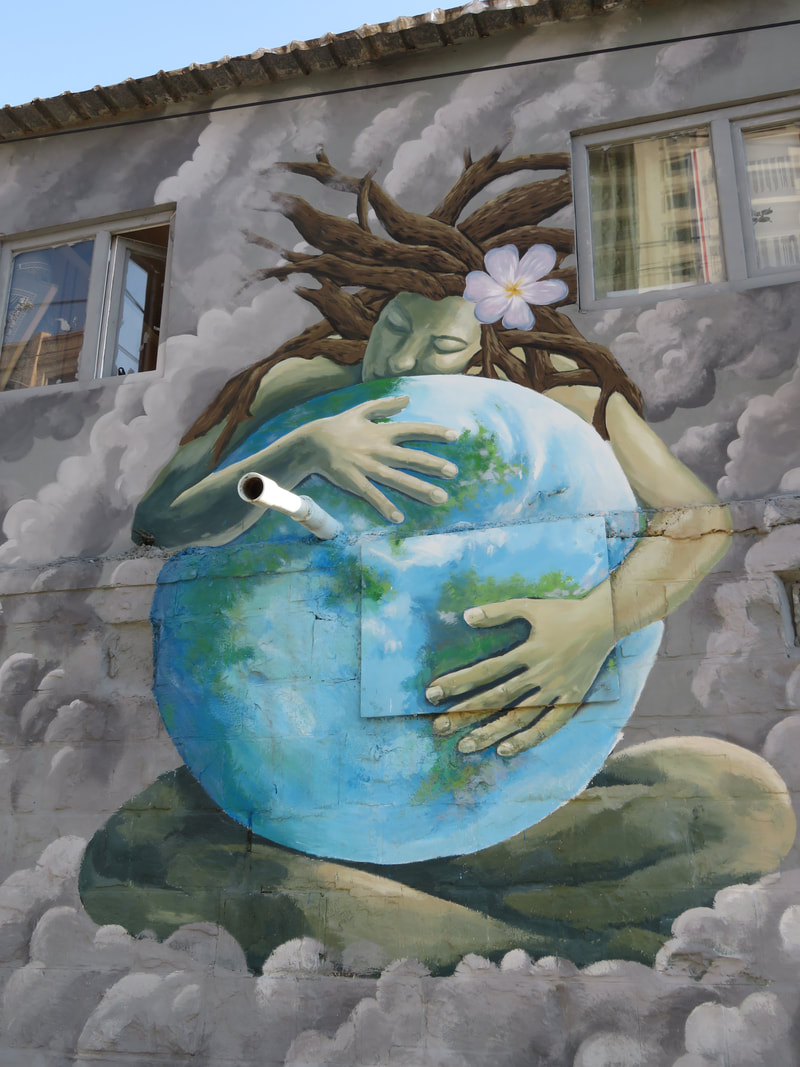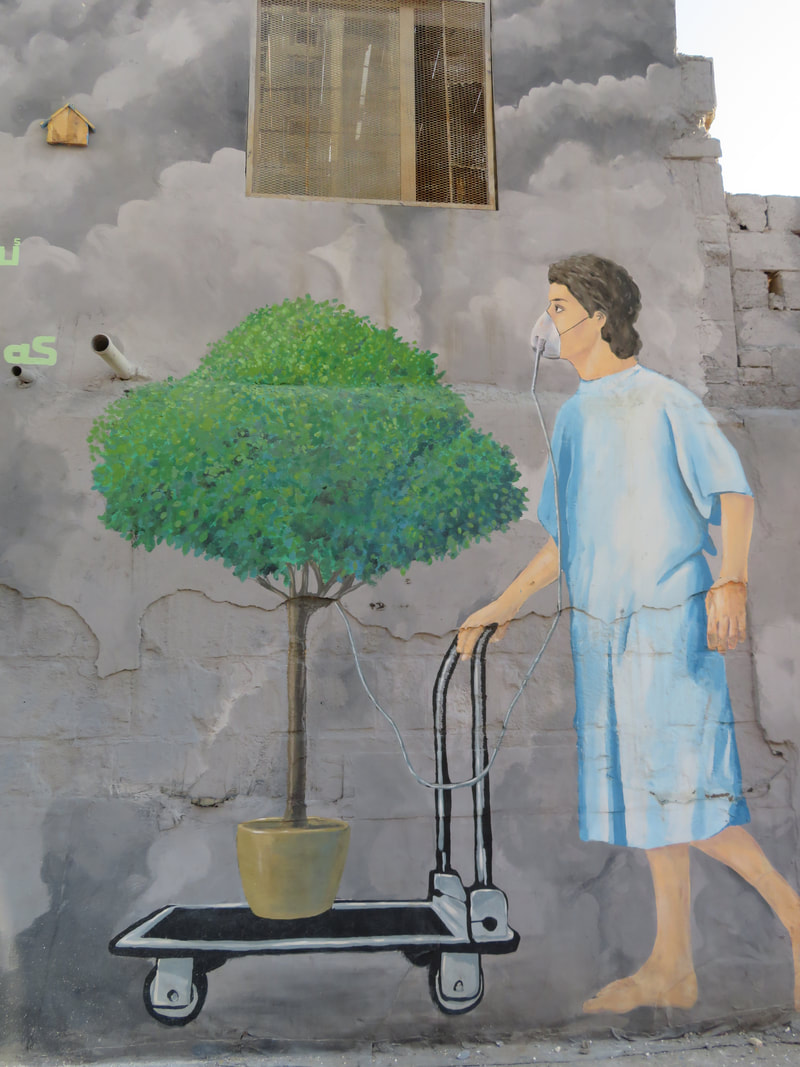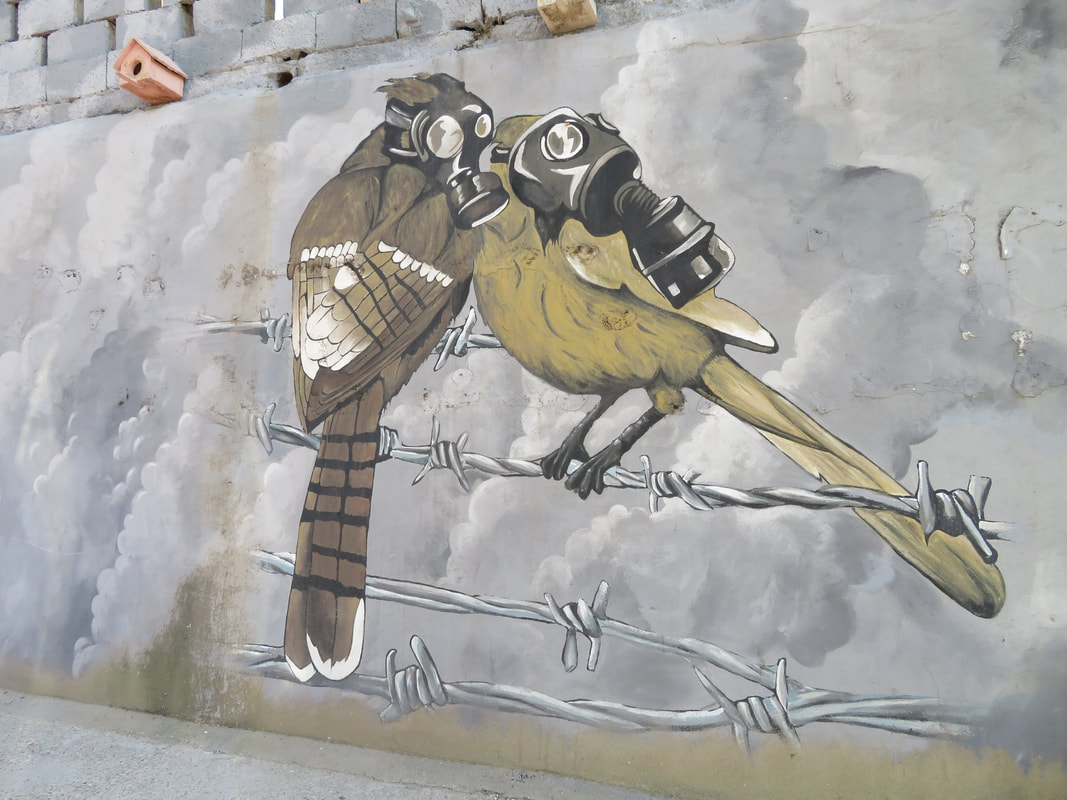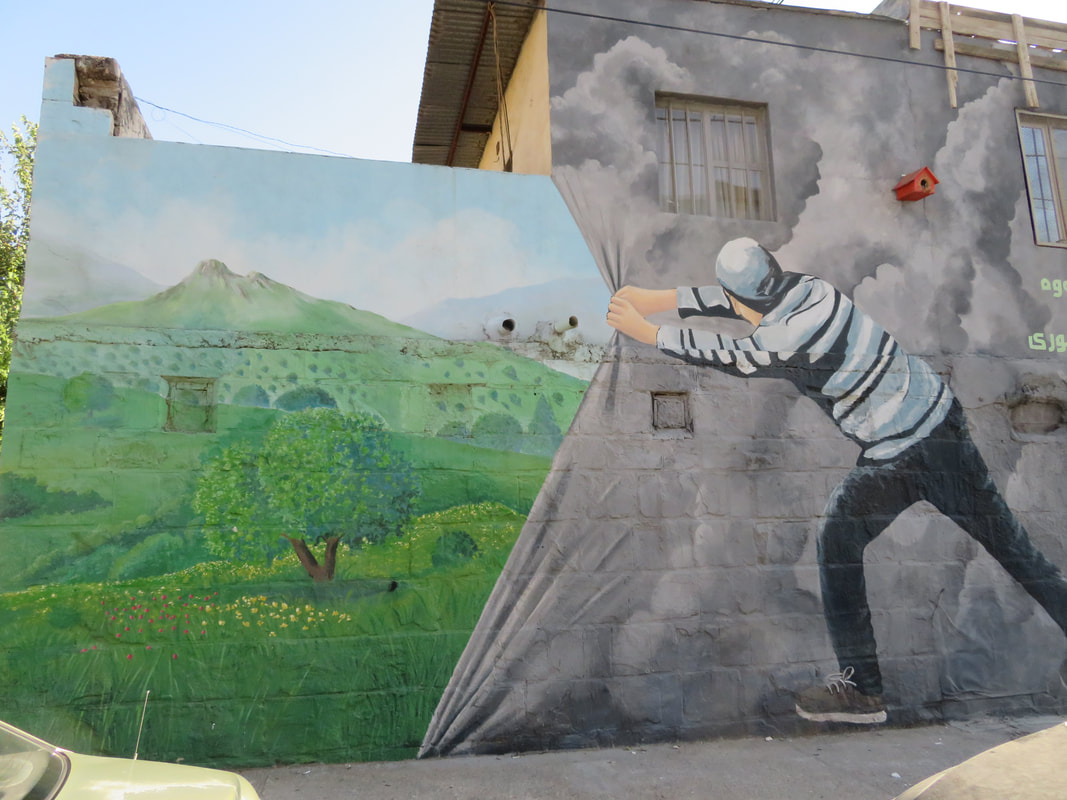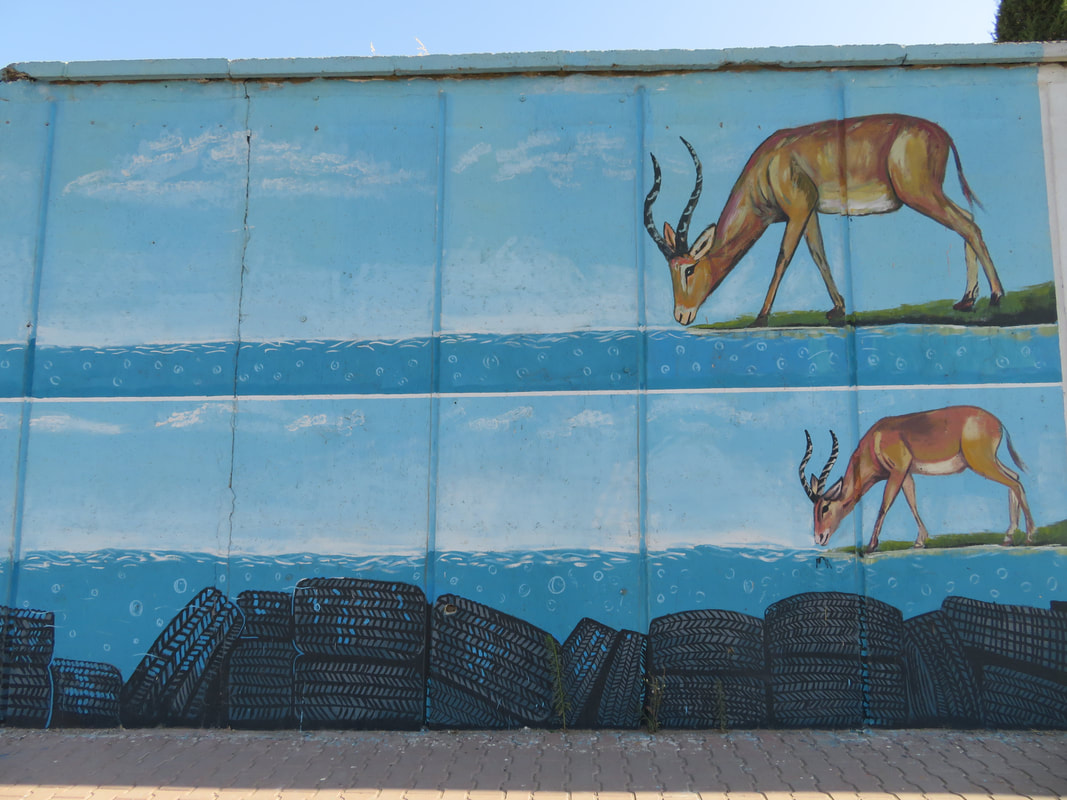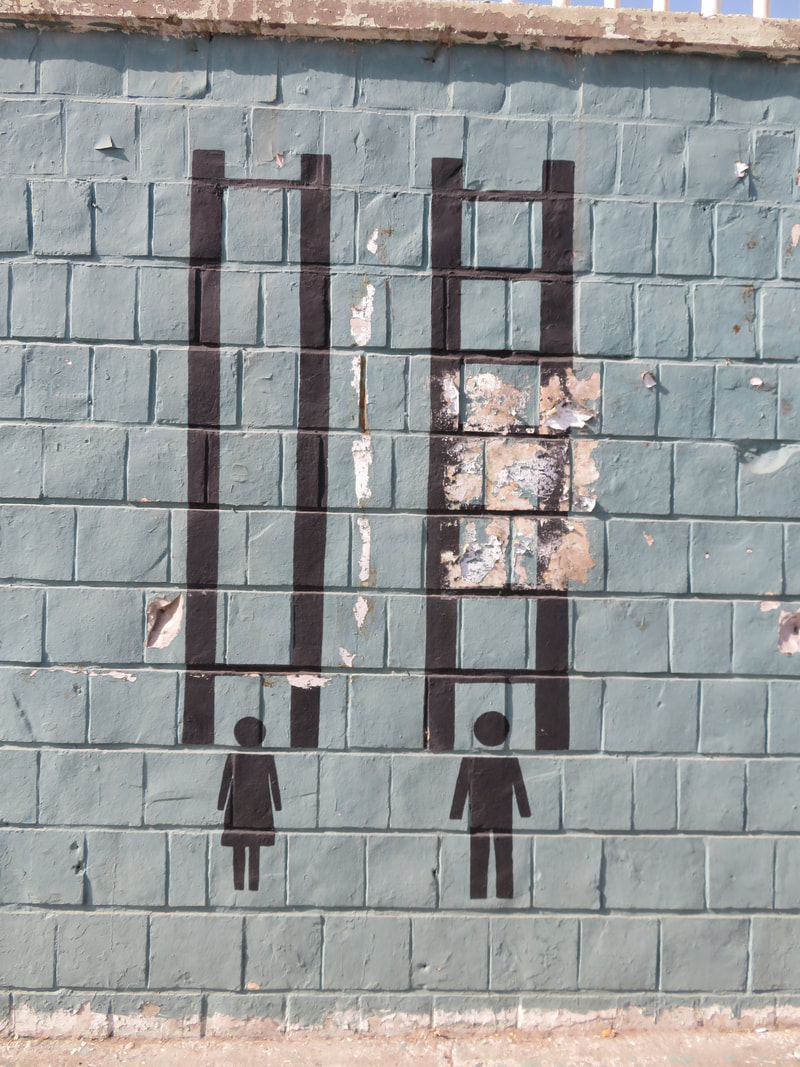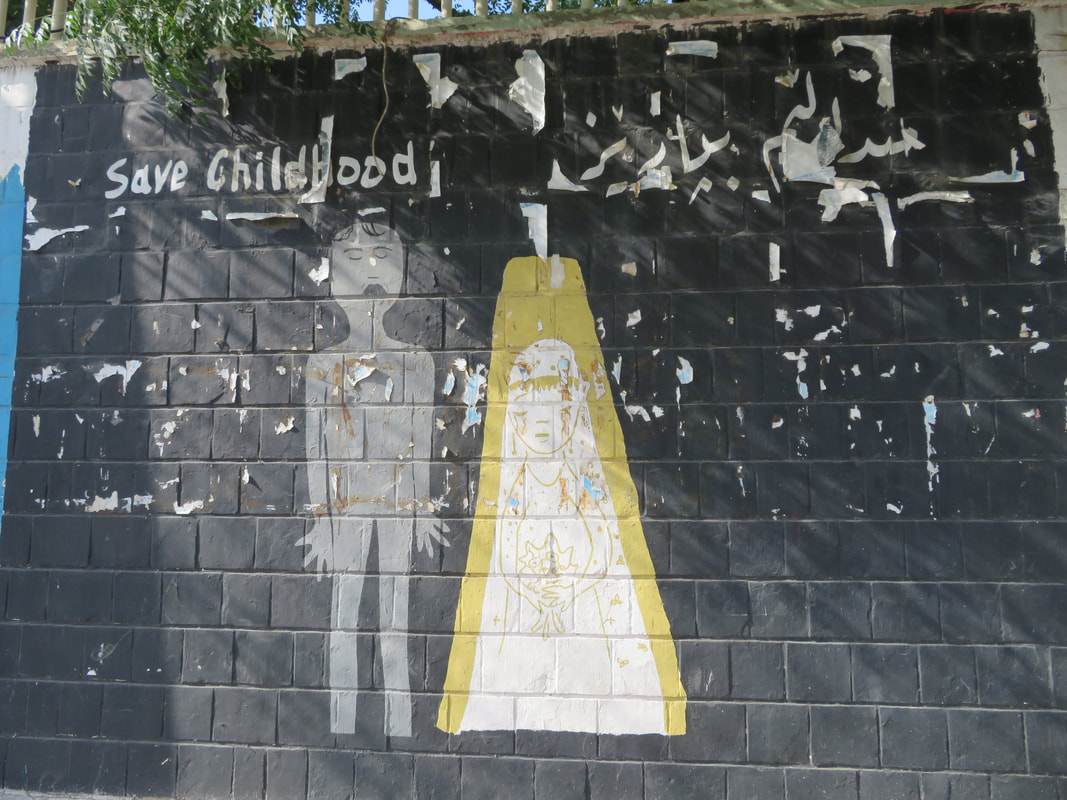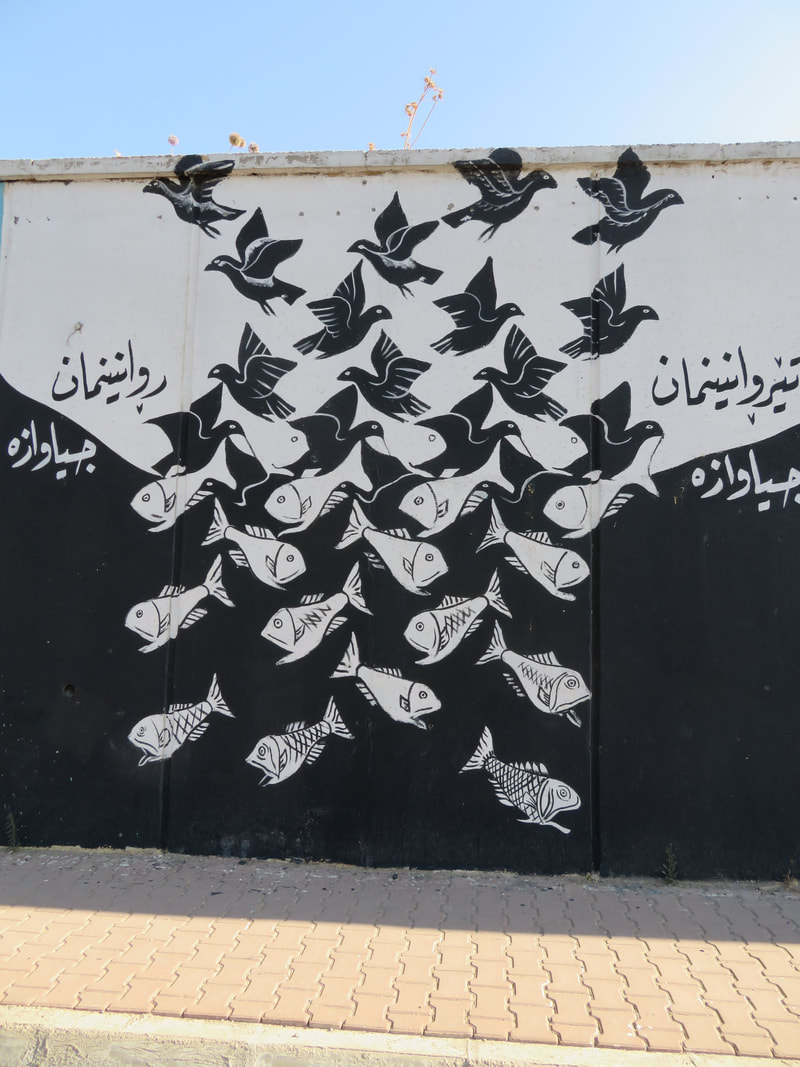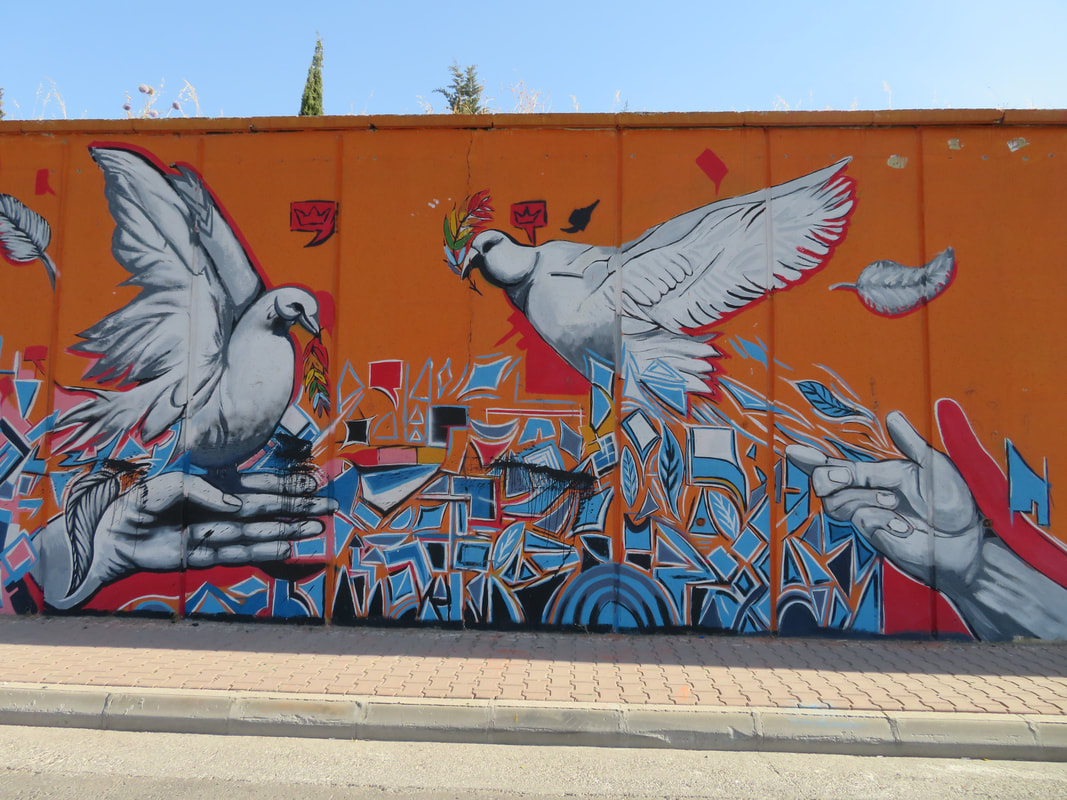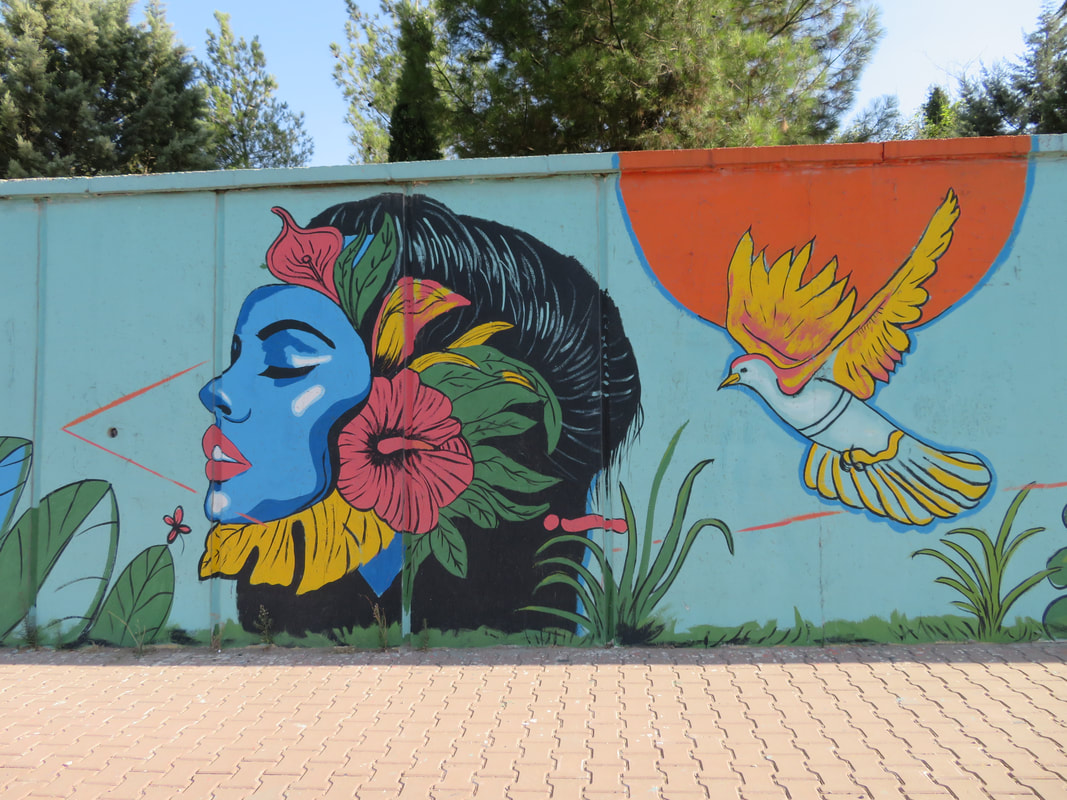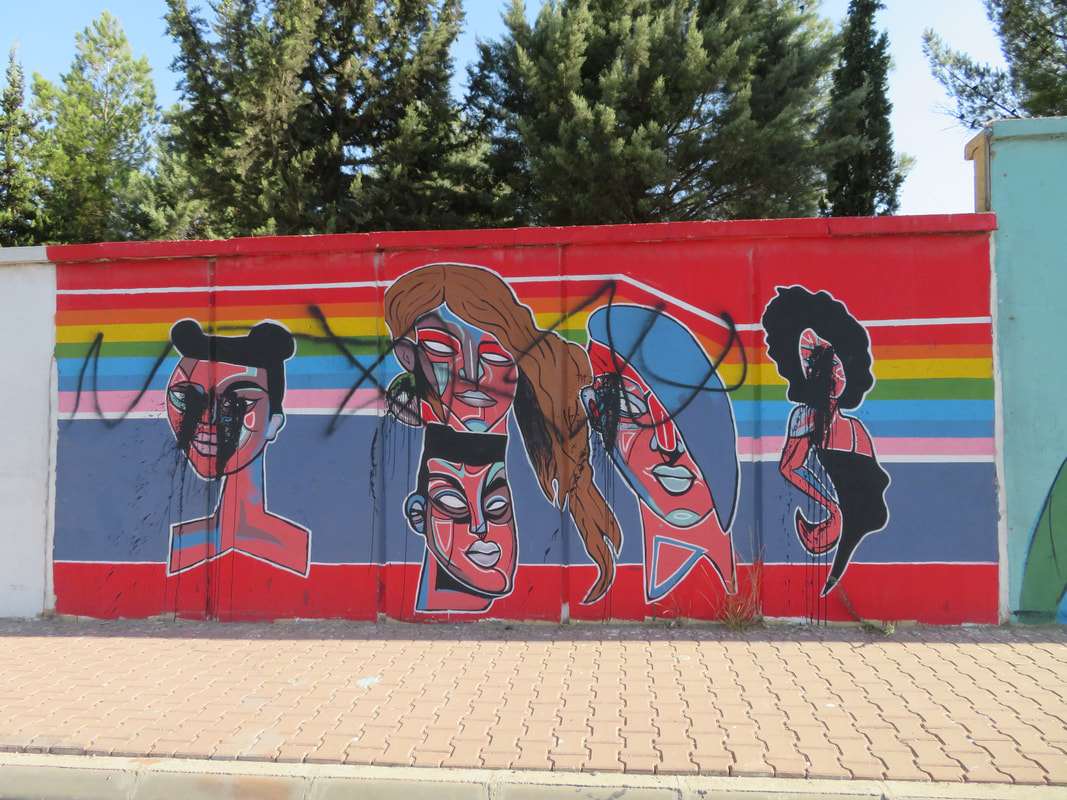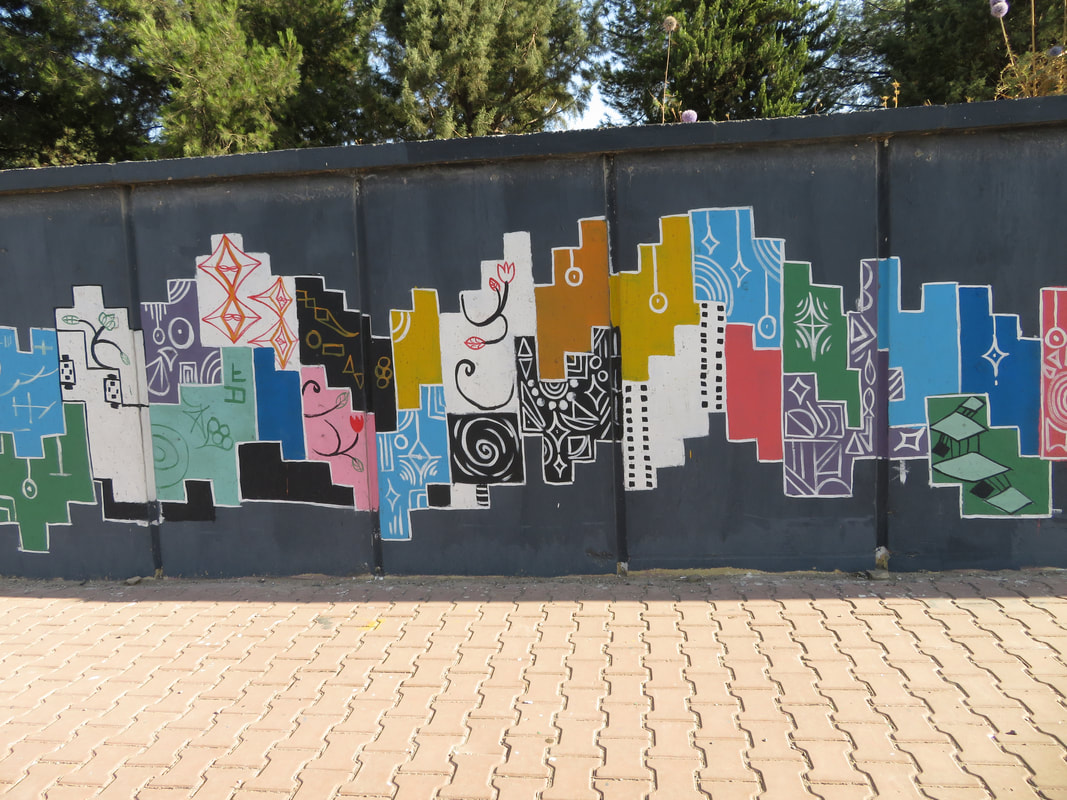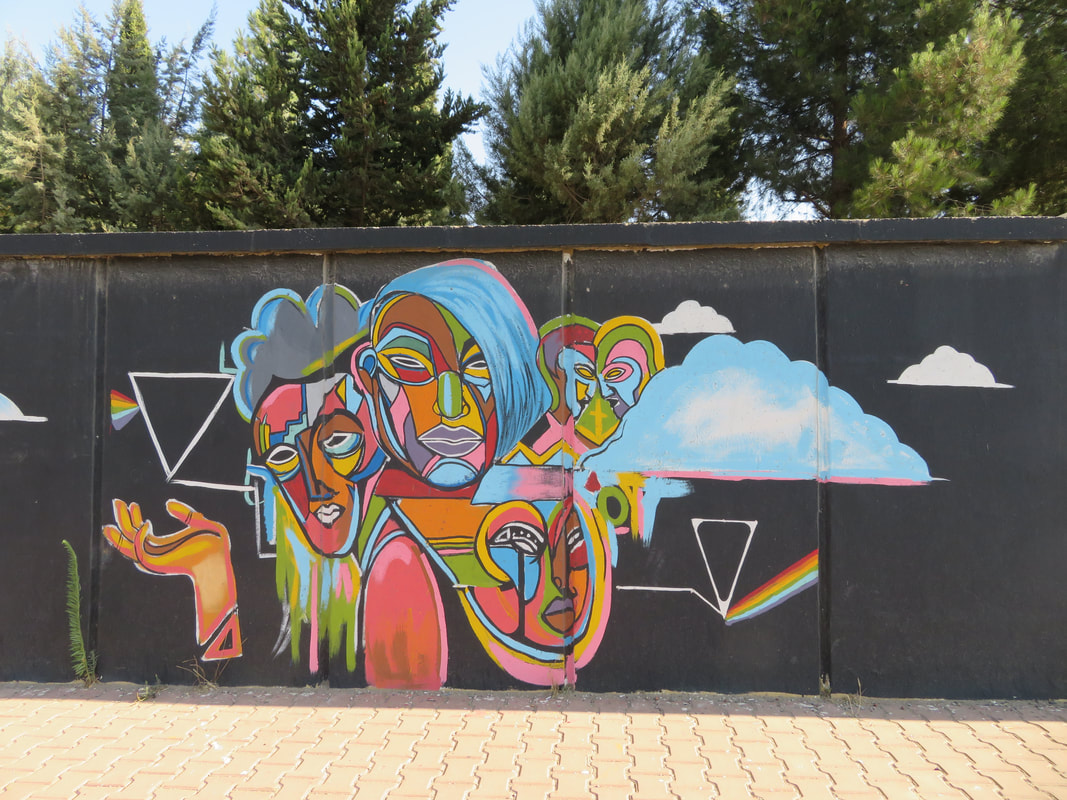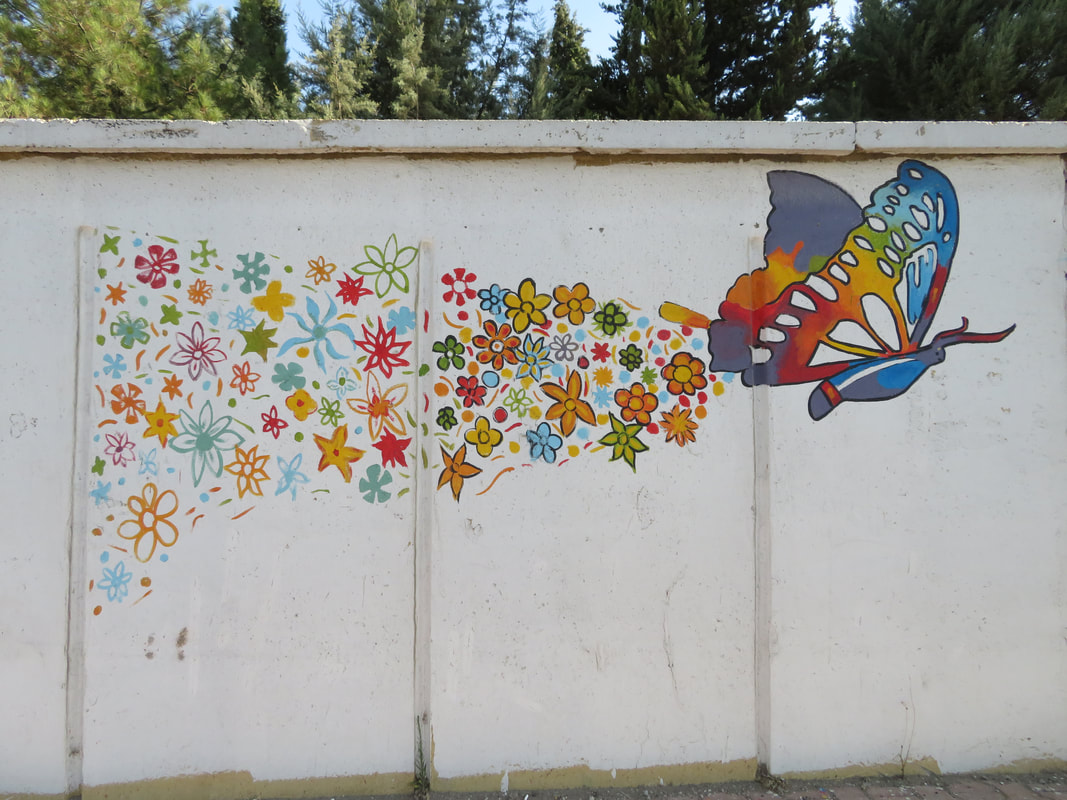Sulaymaniyah, Kurdistan, Iraq
In July 2019 I visited Sulaymaniyah in the Kurdish part of Iraq. I was at a meeting at the American University there. There are some murals in the city, mostly painted by a group called Rasan. Many are on the theme of gender equality, including LGBT rights. There are also references to famous Kurdish women, to peaceful coexistence and opposition to war in general. There are a few references to the political situation in Kurdistan. And there are many murals in support of the environment.
My thanks to Rasti Ranj for showing me around, to Tarik Bechili for translation and to Julie Duchatel for her help.
My thanks to Rasti Ranj for showing me around, to Tarik Bechili for translation and to Julie Duchatel for her help.
The text reads: 'Outdated, retrograde'.
Happy face, sad face: 'You decide.'
'Never stop dreaming.'
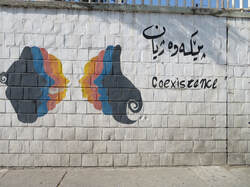
Note the subtle use of the rainbow flag seen widely in support of LGBT rights.
'People's role in society and in life is determined by their ability and skill but not by masculinity or feminity.'
'A human being's honour is measured though their work and true love as well as through their sincerity to move society forward. There is no difference between men and women's honour.'
'Protect the environment.'
'Rawchen Badir, the mother of Kurdish journalism.'
'The Kurdish historian and poet, Mastoureh Ardalan' (1805-1848).
Layla Zana was the first Kurdish woman to be elected to the Turkish parliament in 1991. Even though speaking Kurdish was illegal, she took part of her oath in Kurdish. In 1994 she was imprisoned for 15 years on false charges of belonging to the PKK, the banned Kurdish Workers' Party. Her sentence was increased as she continued to write articles from prison in Kurdish supporting Kurdish separatism. Amnesty International claimed her as a prisoner of conscience and the European Court ruled against Turkey on the basis of her imprisonment. In 2004, Turkey, anxious for EU membership, freed her.
Hapsa Khan (1892-1953) was an early Kurdish feminist. She founded the Kurdish Women’s Association and established the first women’s school in Iraq. She supported and funded a revolt against British occupation in 1920 and supported the establishment of a Kurdish state. She died in Sulaymaniyah. 'The symbol of the changes in society.'
'Life is beautiful.'
'There are millions of people living on earth. It's inevitable that all of them do not think the same way as you.'
'Our differences give us strength.'
'Anfal and the Kurdish genocide.' Between 1986 and 1989 the Iraqi regime engaged in a sustained campaign against Kurds in the north-east of the country. The offensive included aerial bombing, systematic destruction of towns, mass deportation, firing squads and chemical warfare. The man in charge, Ali Hassan al-Majid, Saddam Hussein’s cousin, became known as Chemical Ali as a result. Between 50,000 and 182,000 Kurds were killed.
'It's the first time in people's history that girls' bodies became a bullet in front of enemies.'
'Today there is someone sitting in the shade because someone planted a tree years ago.'
'Today one tree, tomorrow two trees and in the future a forest.'
'I don't want to protect the environment. I want to build a world where the environment does not have to be protected.'
'If you think that ecology is less important than economy, then hold your breath when you count your money.'
Notice the damage to the mural, presumably caused by someone not in support of LGBT and gender equality.
Again, damage to a gender equality symbol.
And again.
Note the targeting of Christian and Jewish symbols.
Opposition to child marriage.



